
Odesa and some nearby settlements were left in a complete blackout due to large-scale accidents on February 3 and 4. Previously, the equipment had already suffered from russia's attacks. The Kyiv district of Odesa was the one that suffered the most from the accident at the Ukrenergo NEK substation. Almost a week after the accident, power companies began to schedule outages providing 2 hours with and 8 hours without electricity.
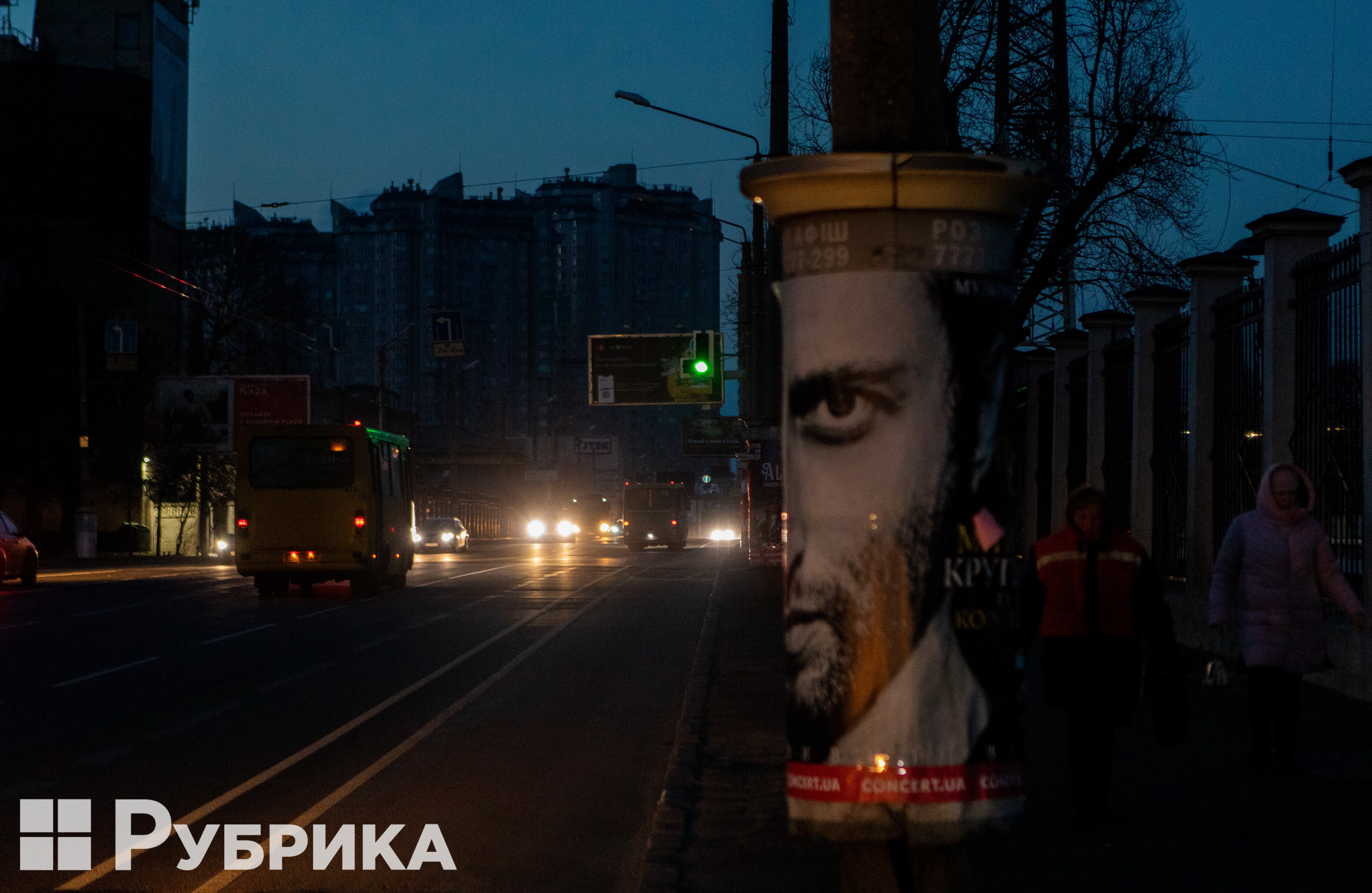
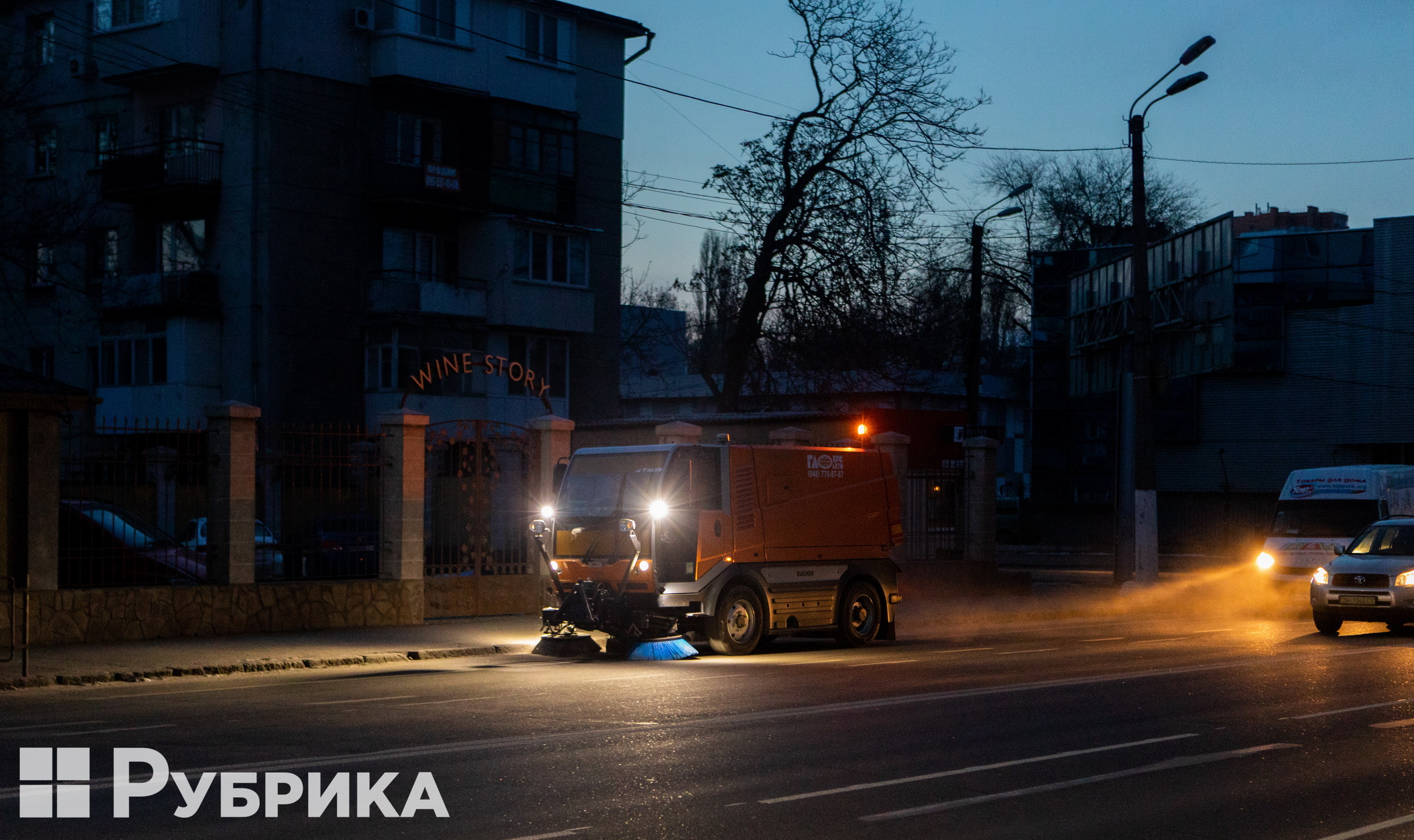
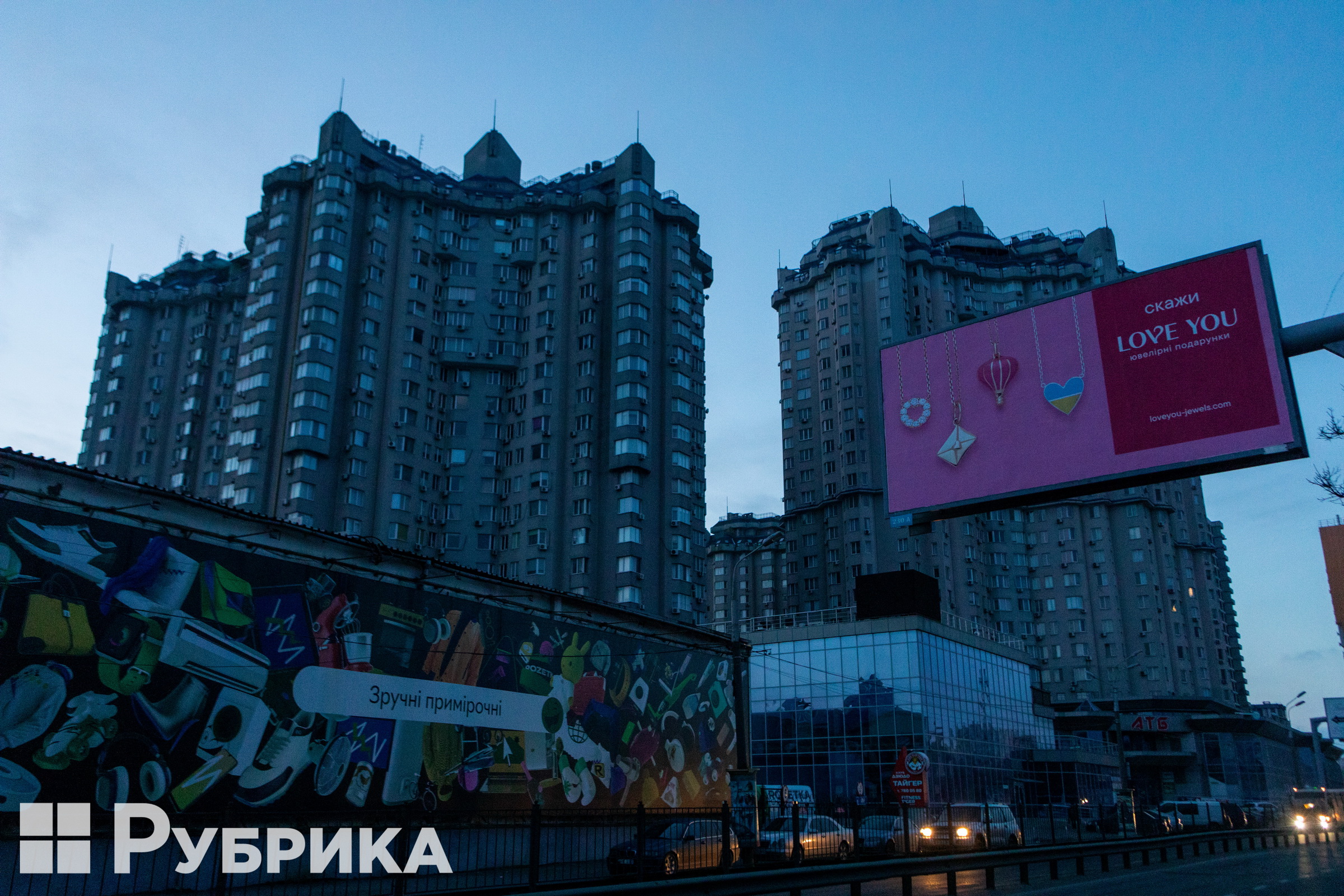
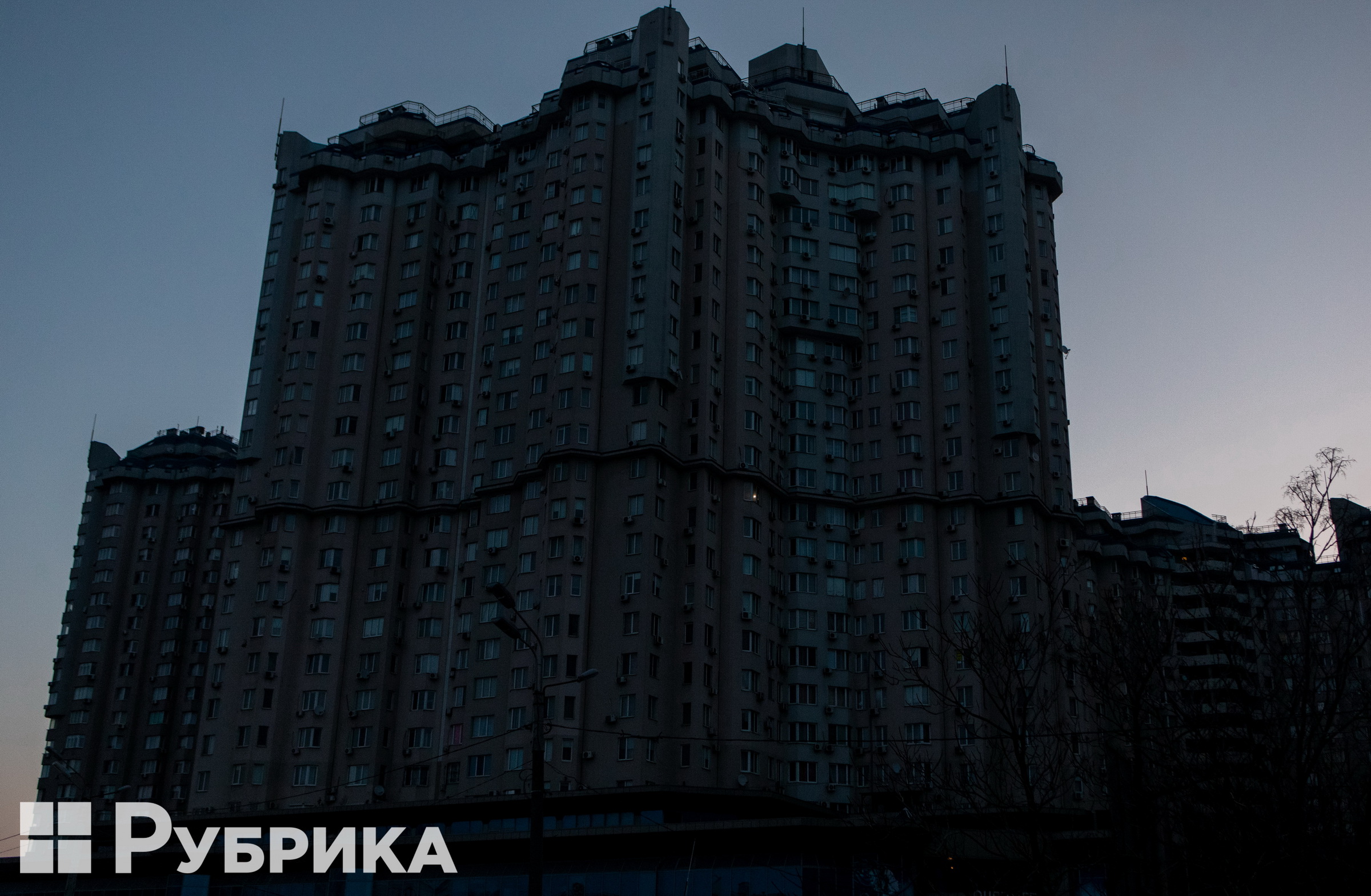
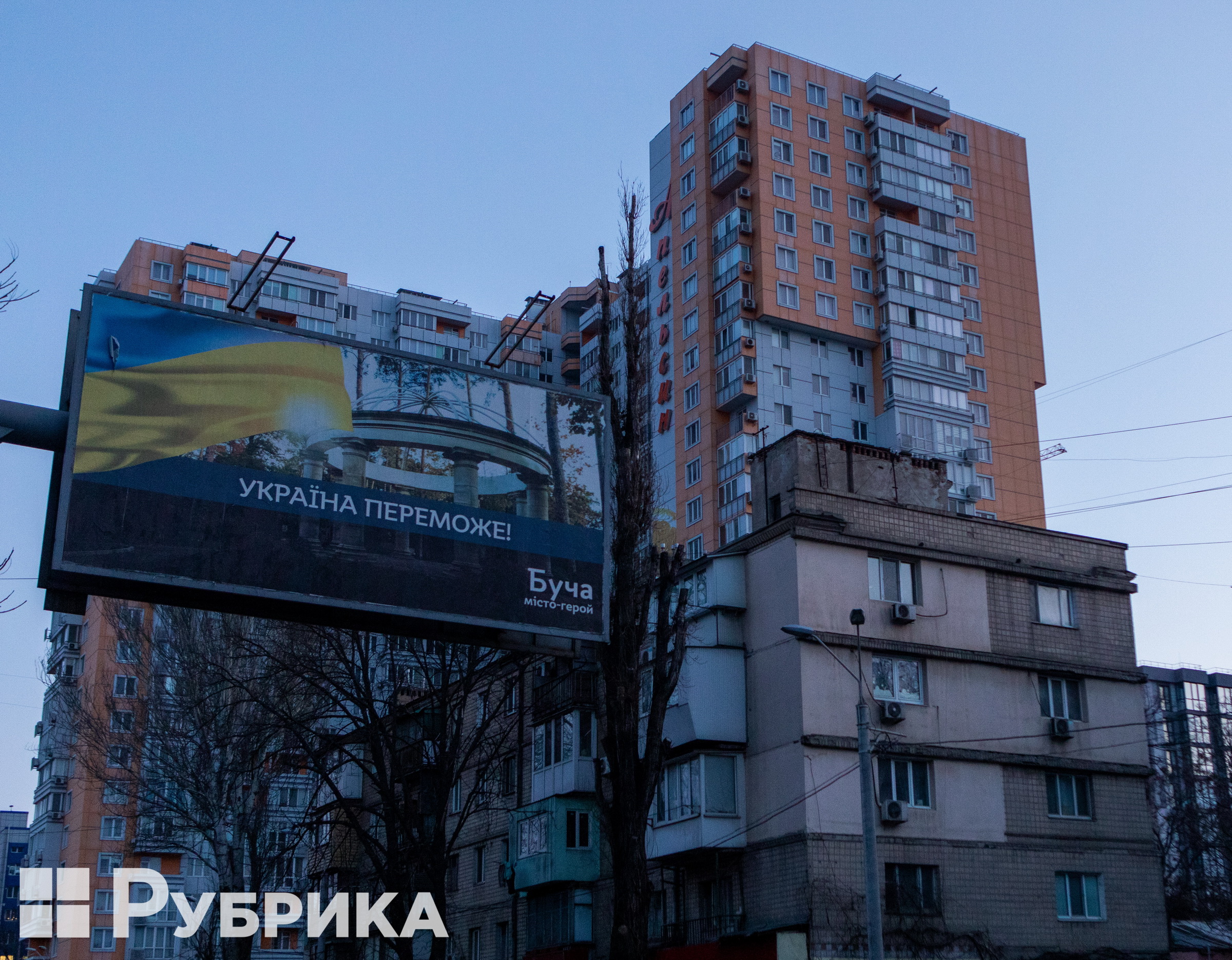
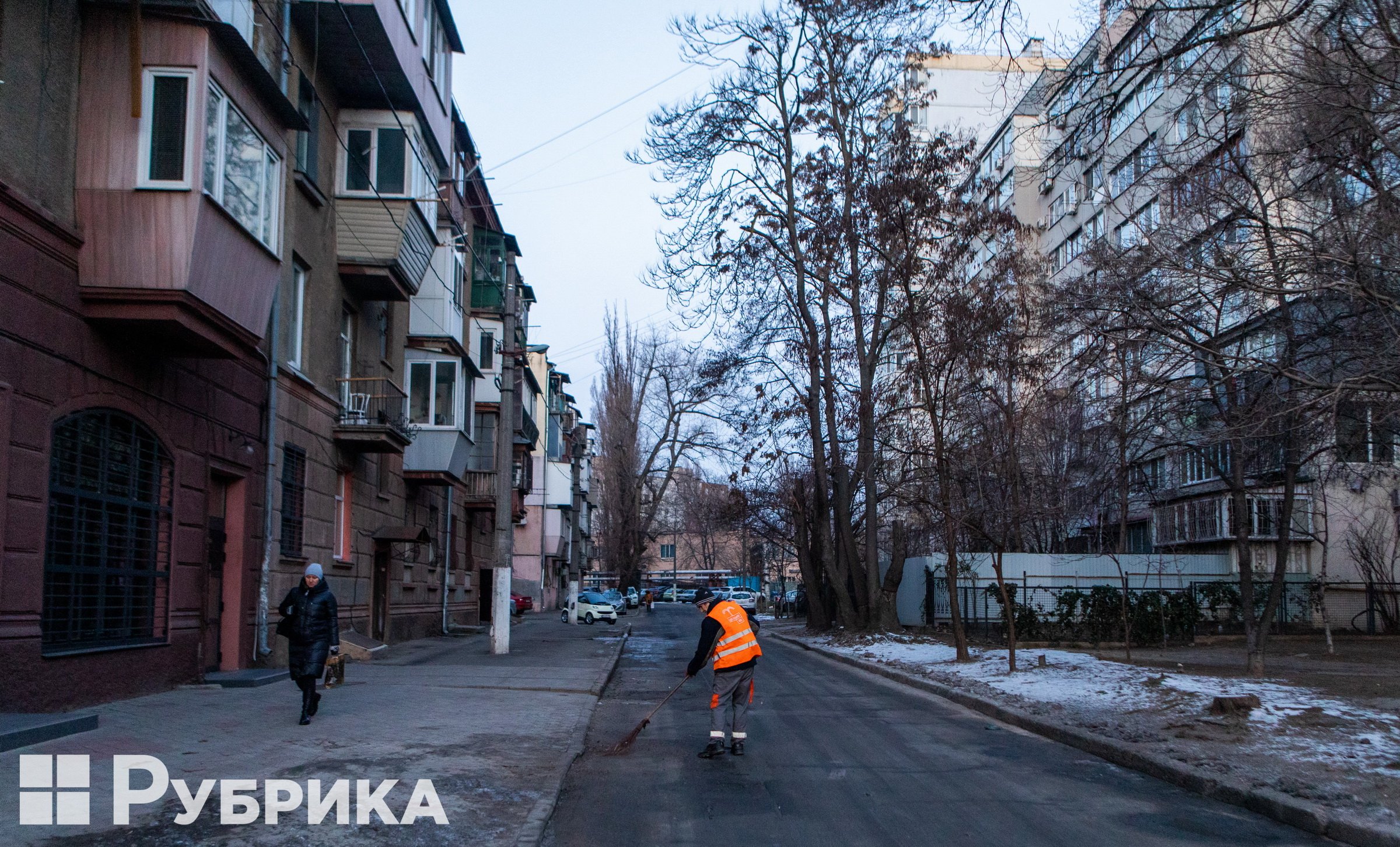
There are various buildings in Odesa — unremarkable old houses and newer 50-year-old ones. Newer buildings rise among them — large 20-30-story buildings.
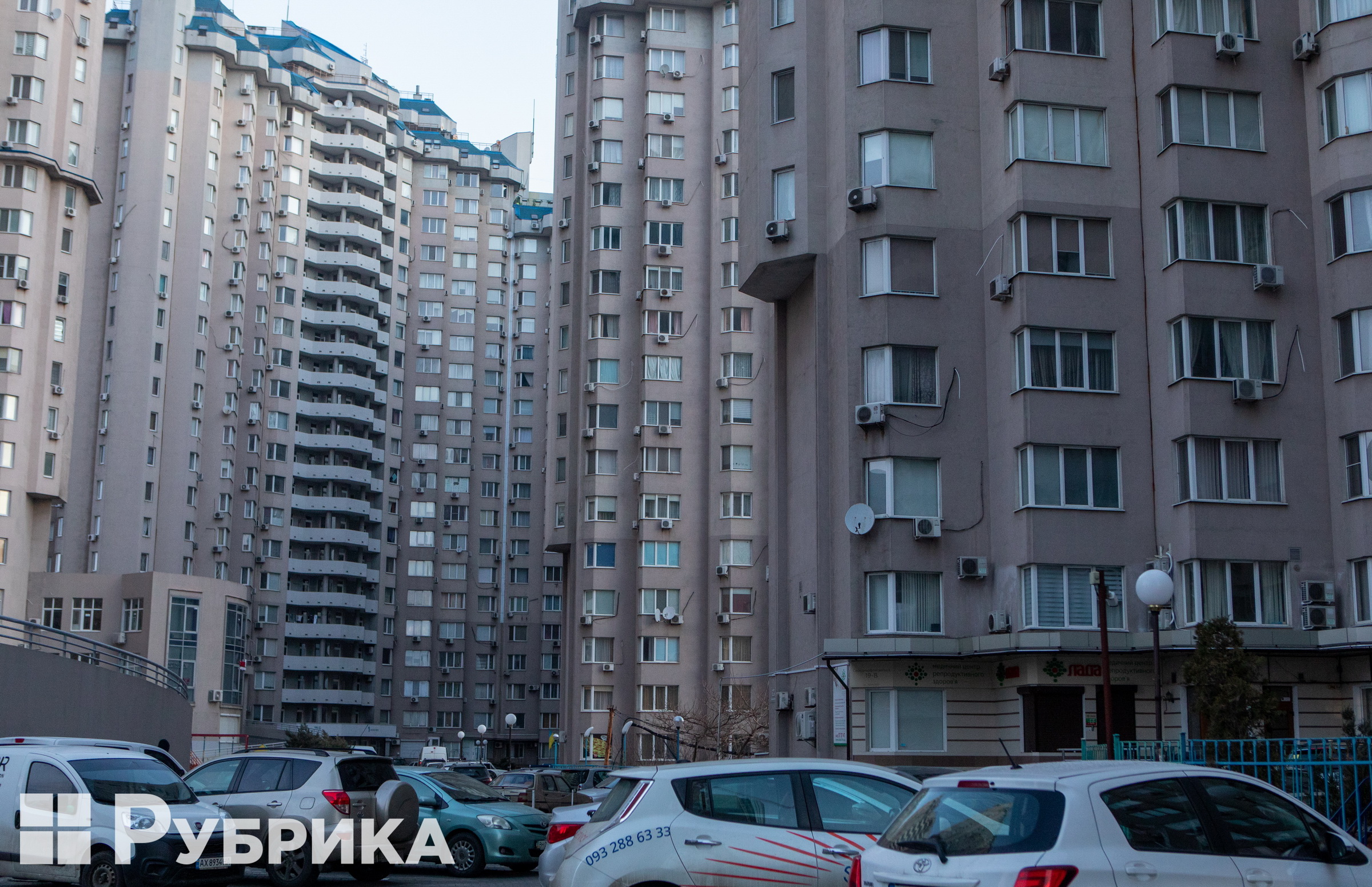
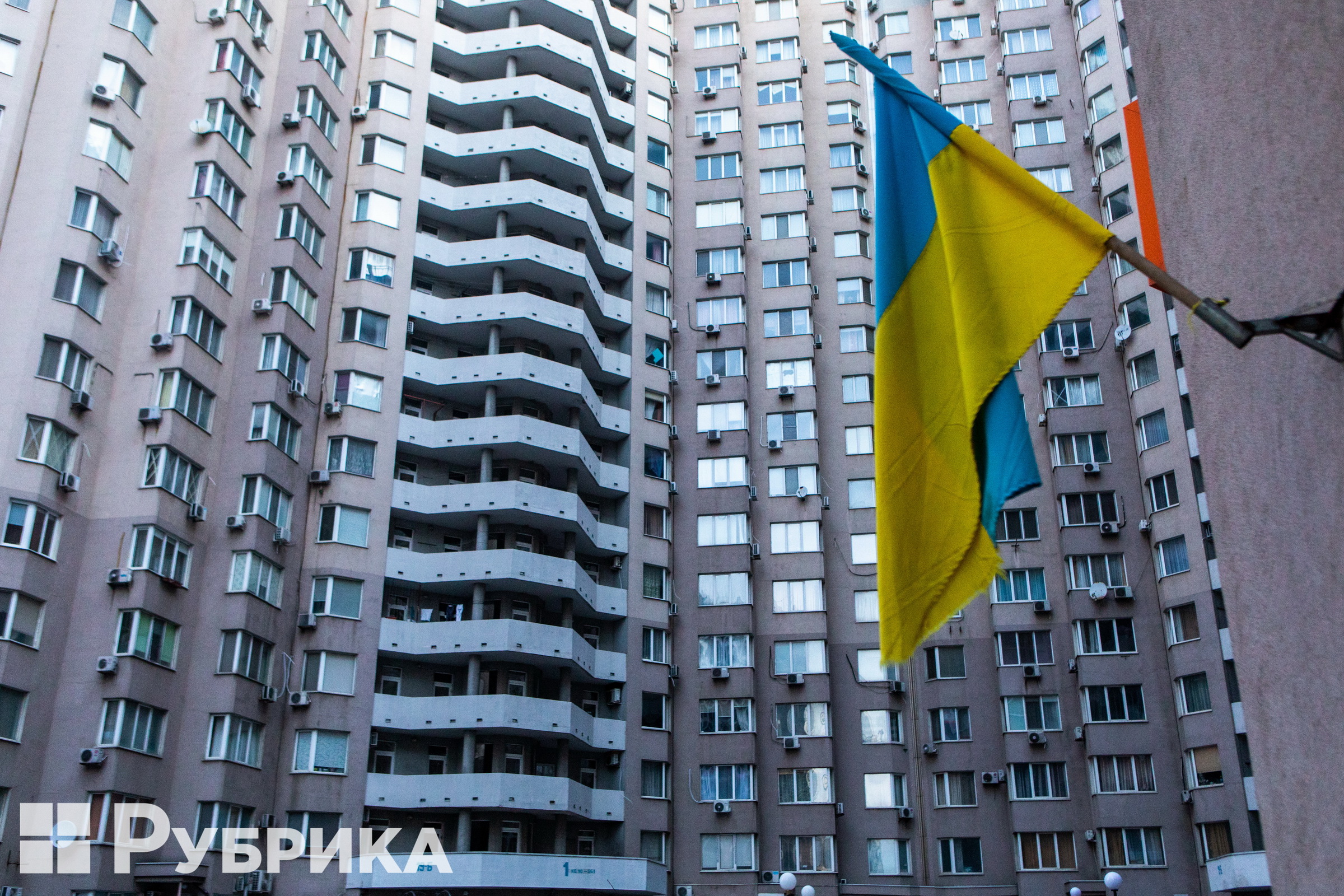
It is here that it is the most difficult because nothing works in the absence of electricity: there is no heating, water, and electric stoves do not heat. Not everyone can climb the stairs to their 20th floor, either. We meet Inna in one of the entrances.
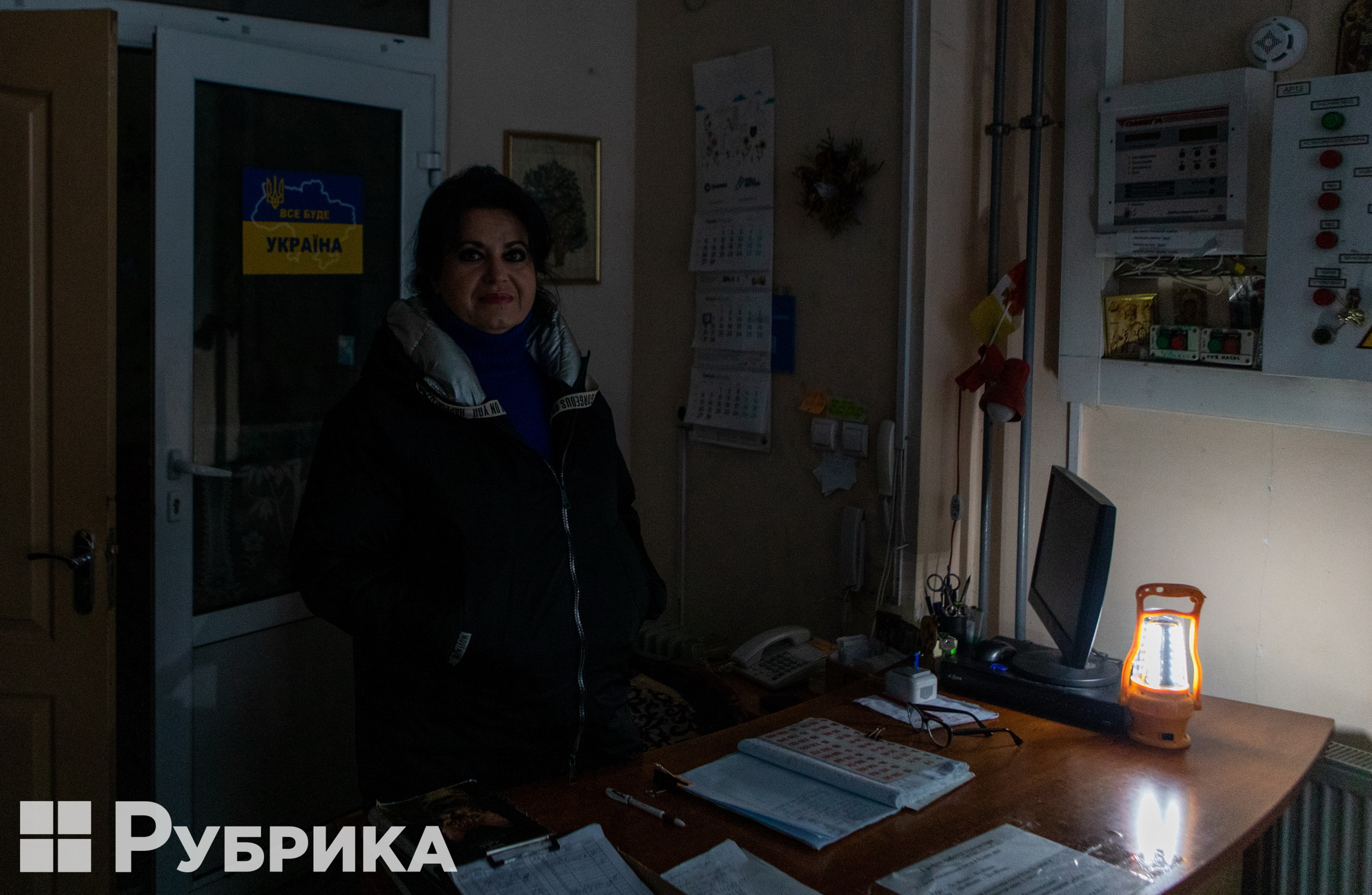
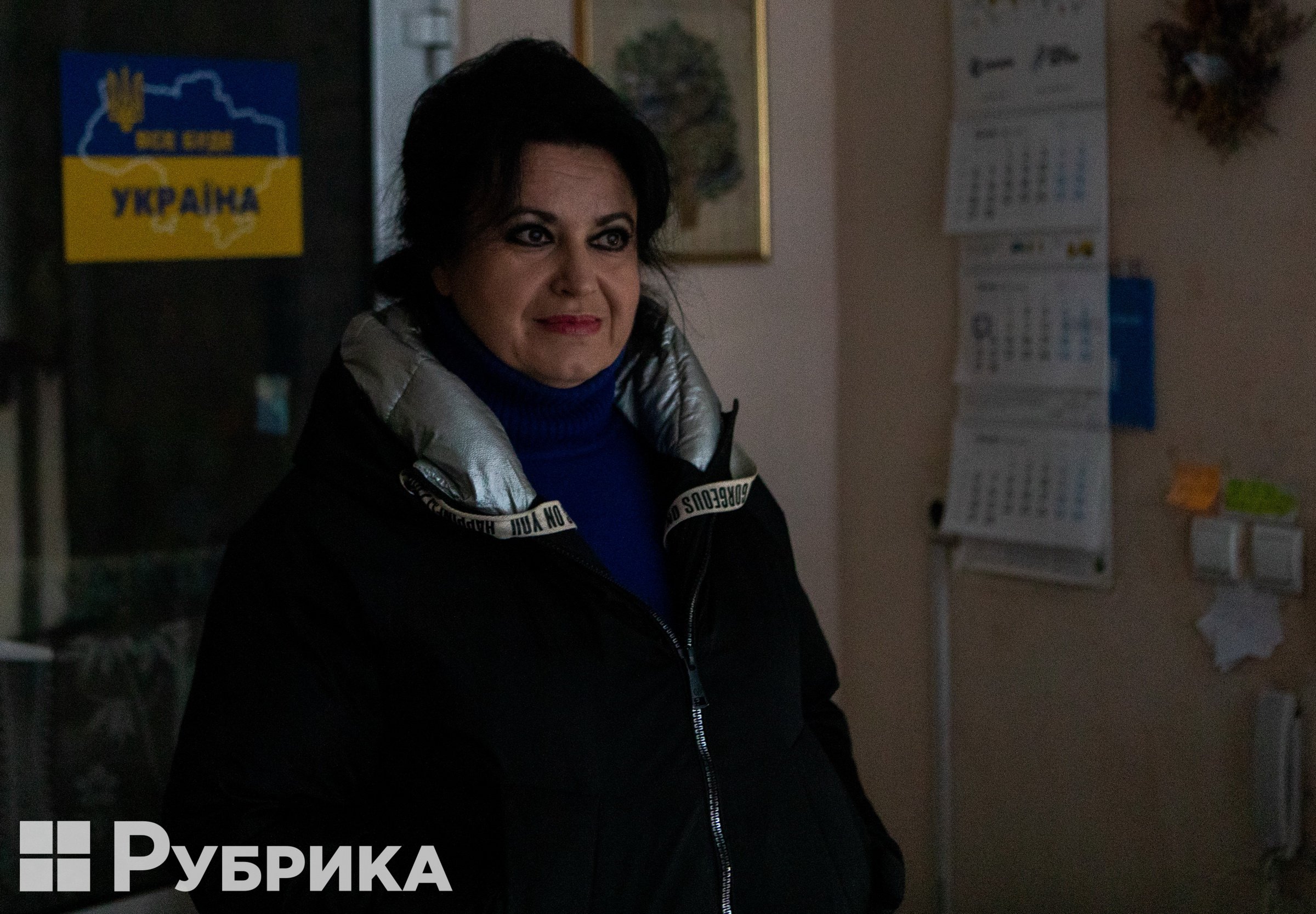
She started working as a concierge recently, but in 10 minutes while we were talking, Inna greeted everyone who came in and out by name. The biggest problem, according to the woman, is the blackout schedule. She explains that houses like this should be turned off for a shorter period because, in the absence of heating, the house cools down very quickly. It's much easier in houses with a gas supply and heat.
It's getting lighter outside; people are walking their dogs, warming up their cars, and going to work. Near one of the coffee shops with a bakery, a boy and a girl pour fuel into a generator.
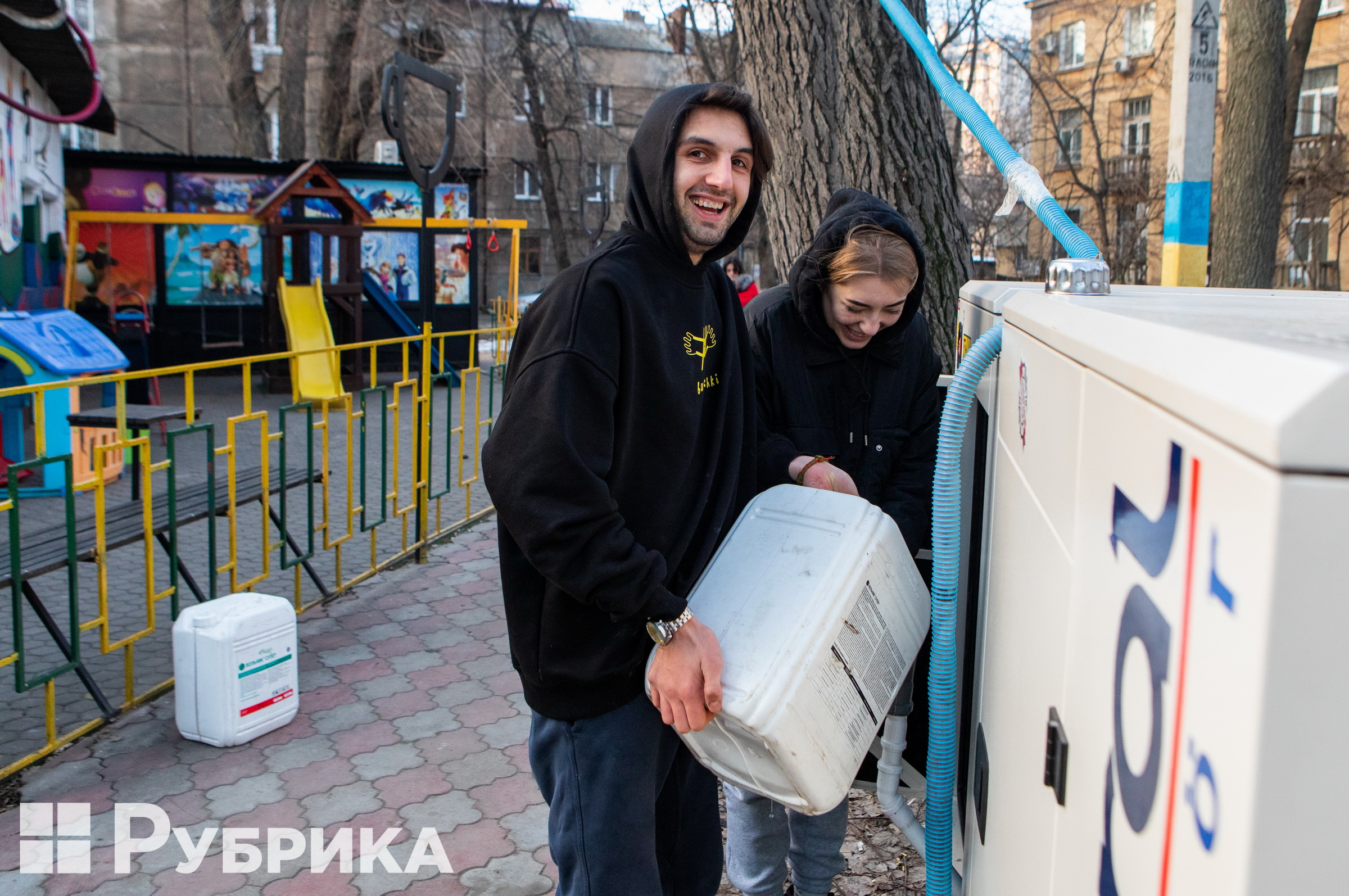
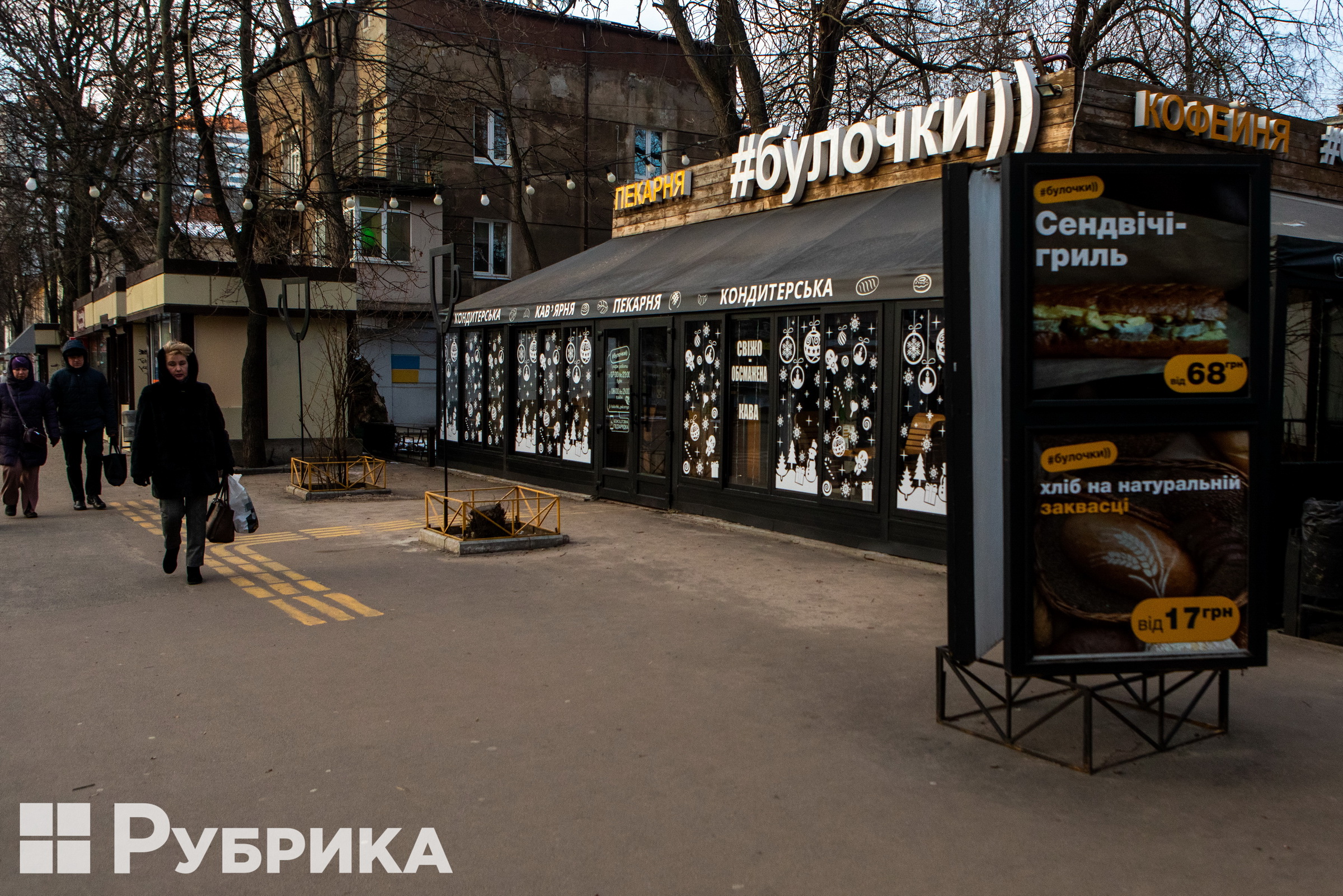
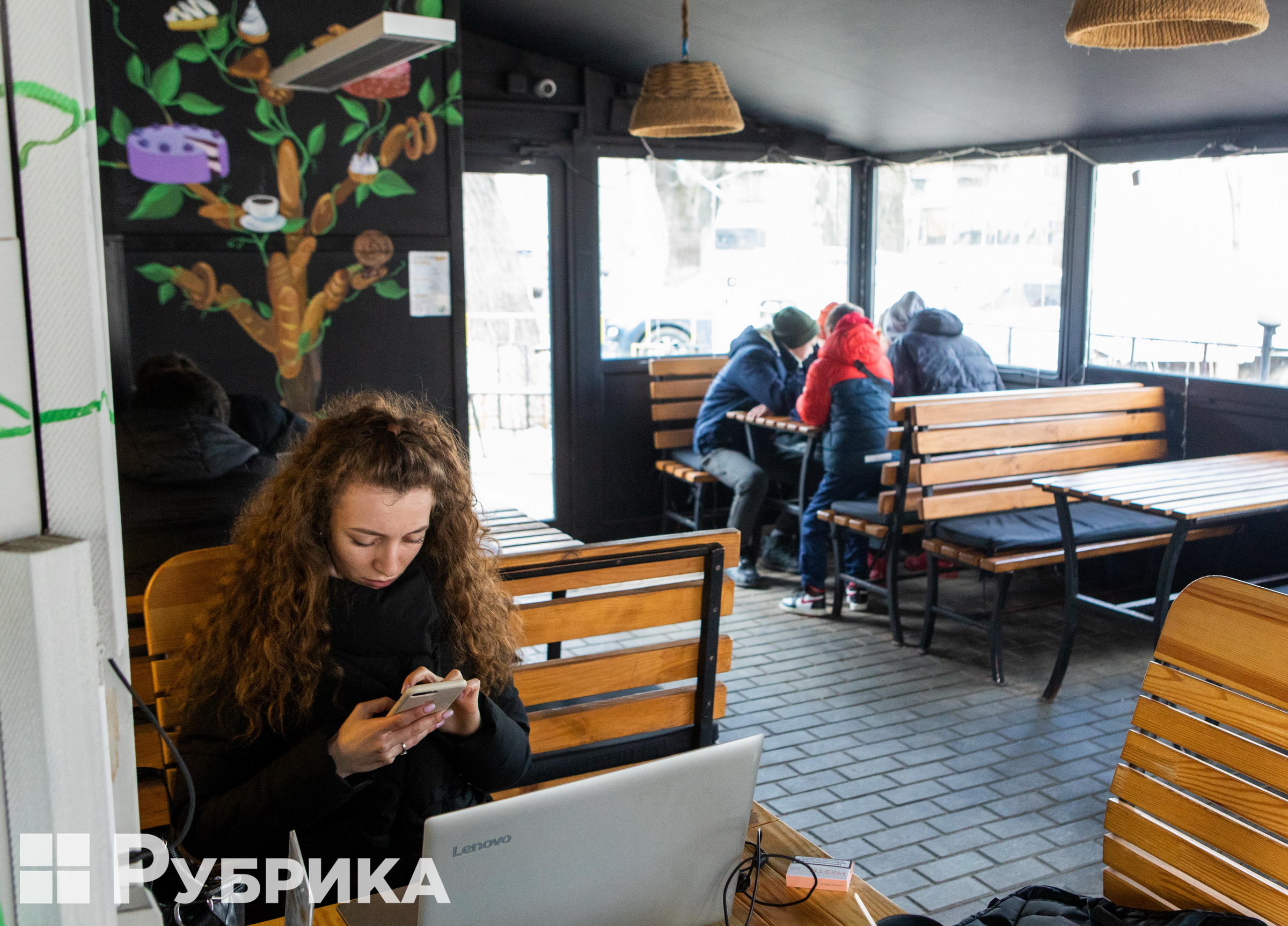
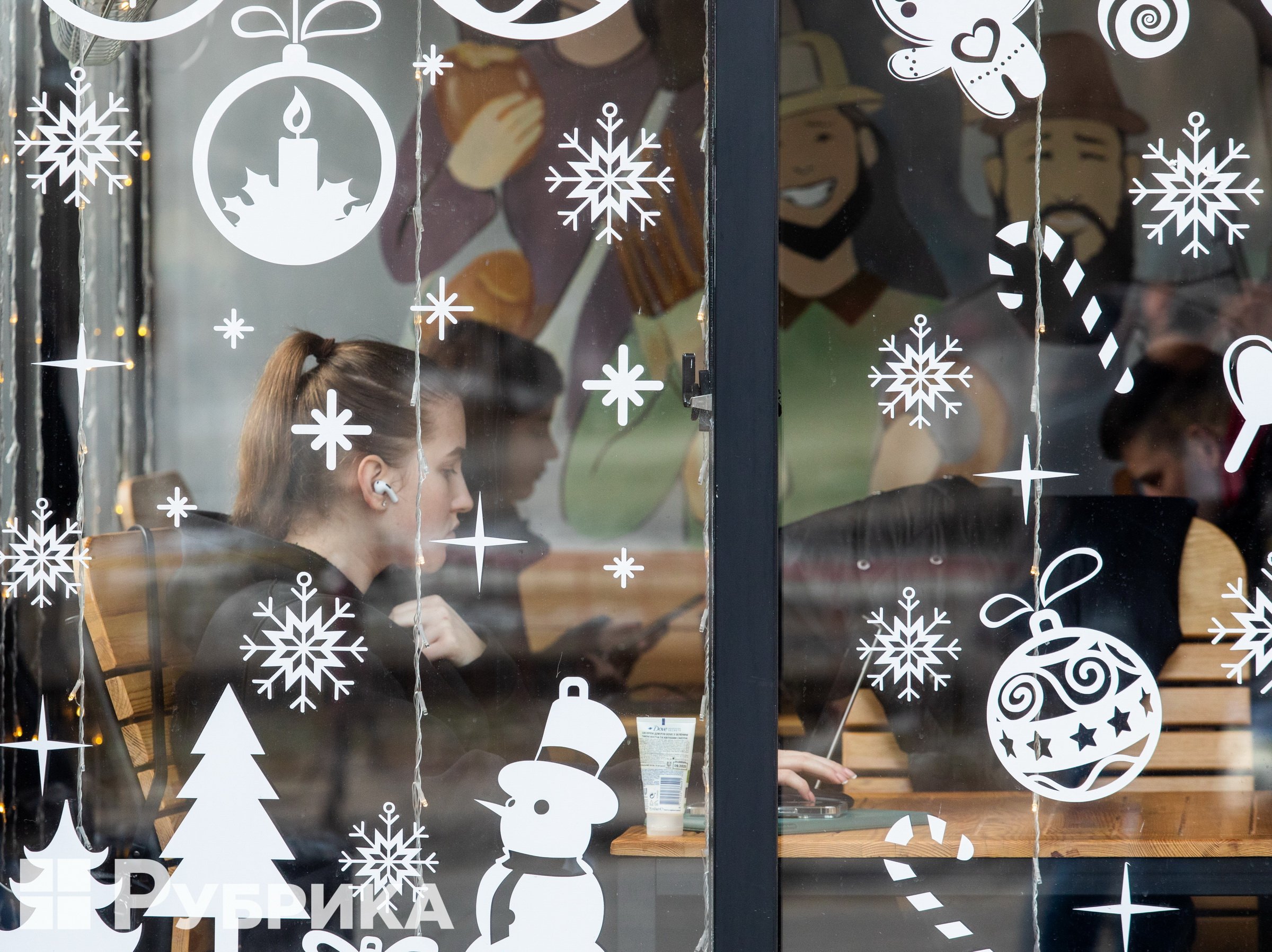
The powerful 30 kW generator takes almost 10 liters per hour of operation. Many guests come but are not charged additionally – the coffee shop, as many other similar businesses, operates as an unofficial "point of invincibility." In a day, about 400 people come, sometimes 50 at the same time.
This is Kulykove field. There are two tents here. The larger one is for heating the homeless, and the smaller one is a point of invincibility where you can recharge your phones. The primary purpose of these points is to become an island of safety, stability, warmth, and unity in the event of an emergency power outage for more than 24 hours. These safety and humanitarian shelter locations operate around the clock and free of charge in the format of temporary stay. The Points of Invincibility provide heat, water, lighting, mobile communication, Internet, power for mobile devices, places for rest, first aid kits, and basic supplies for mothers and children.
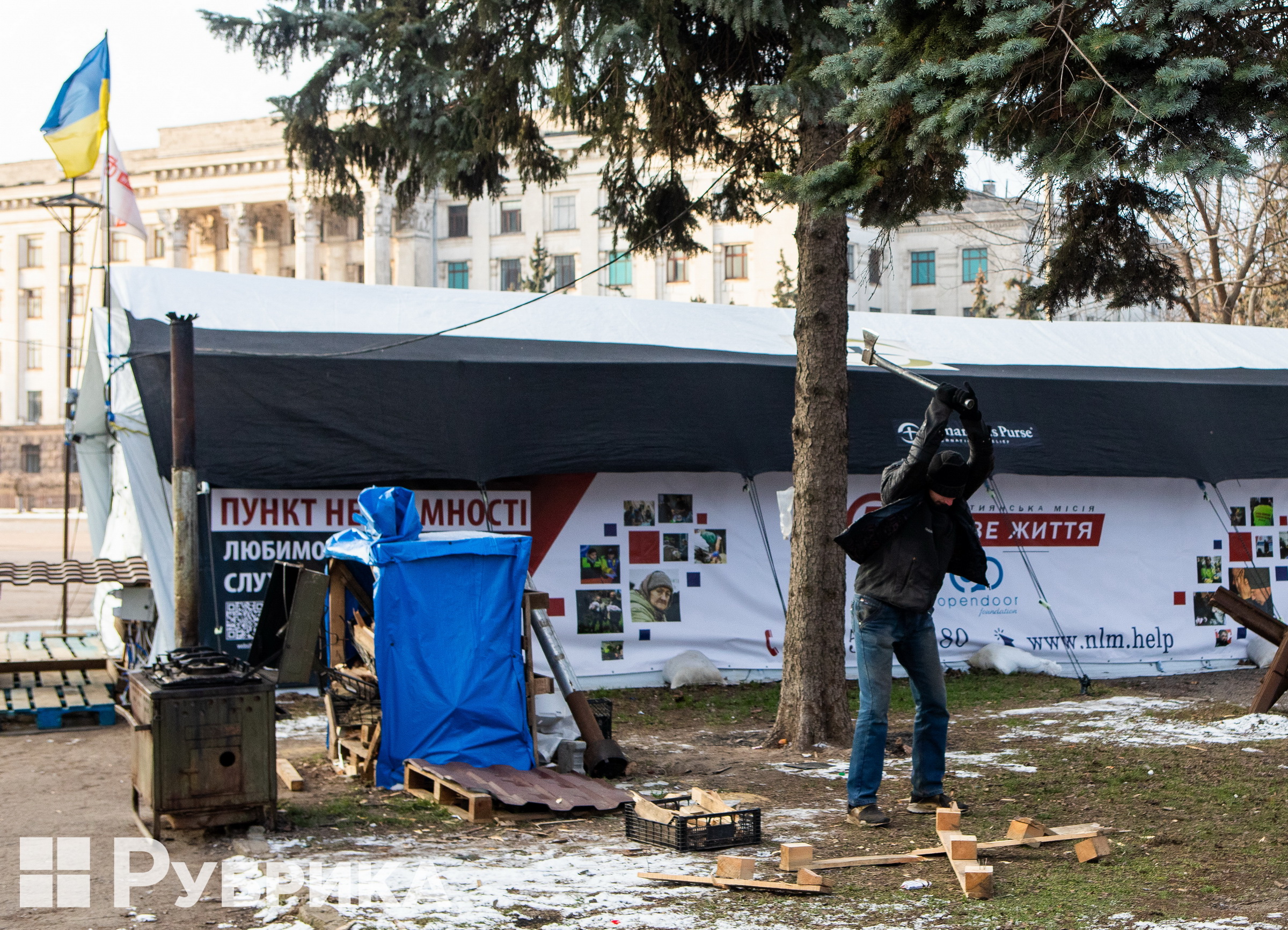
Dmytro Gavrylyuk, one of those who oversee the work of both tents, says that the heating point, above all else, is in demand among those who did not manage to get home before the curfew. In addition, rations are distributed here, and a hot dinner is served at six in the evening. About 150 people receive such support daily, and about a hundred Odesa residents charge their gadgets daily at the invincibility point.
The center of Odesa is impressive — generators are at every step here.
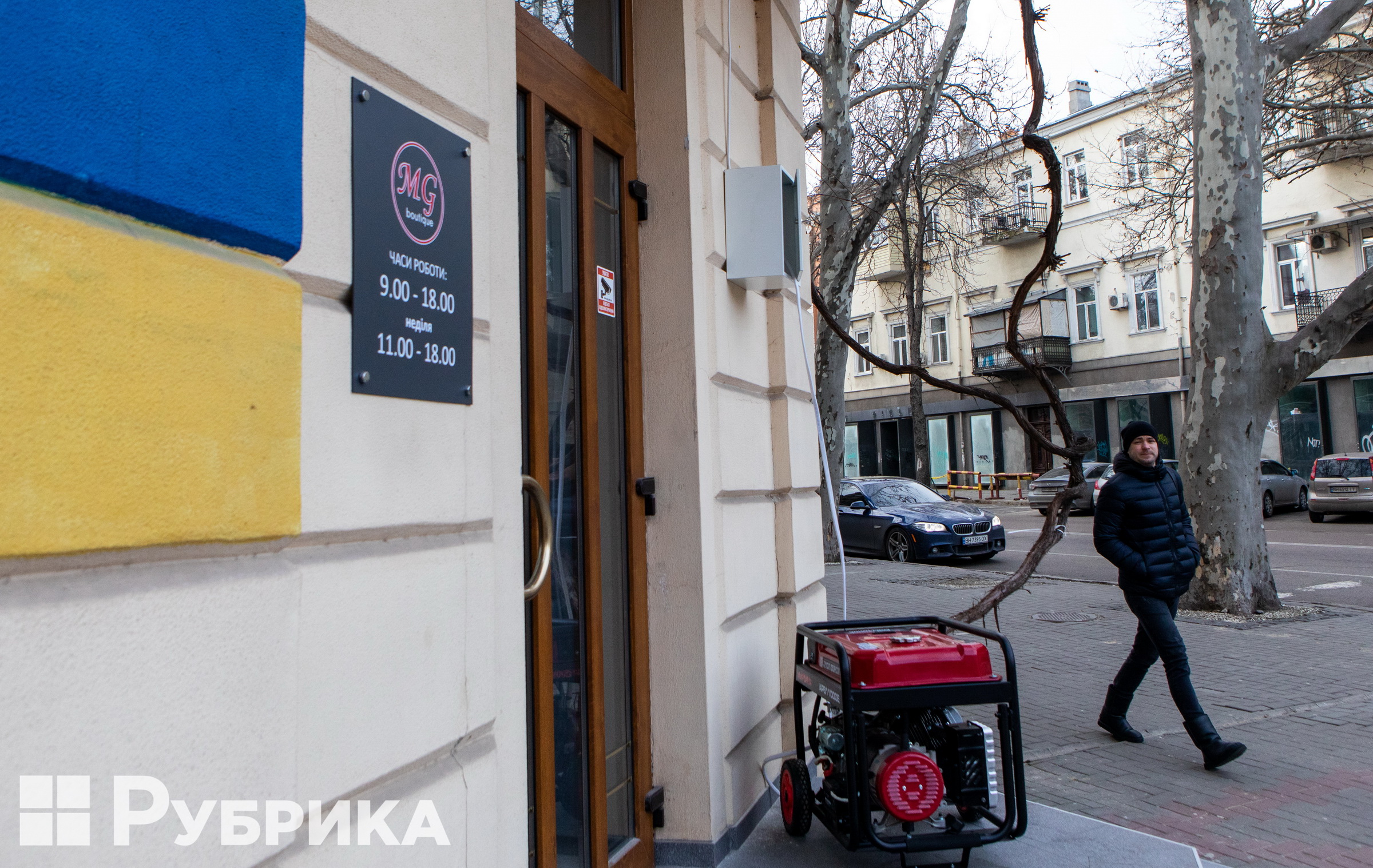
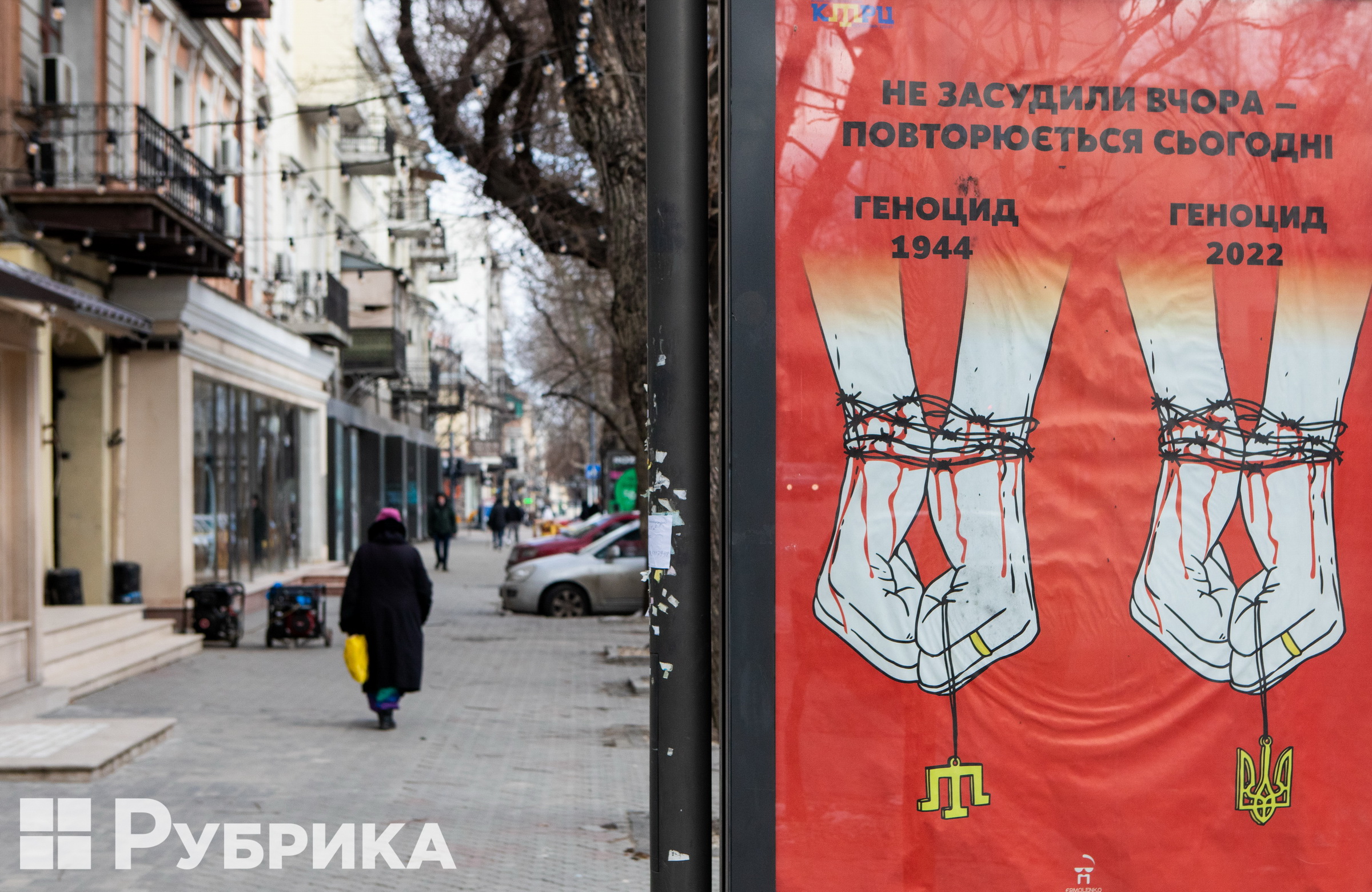
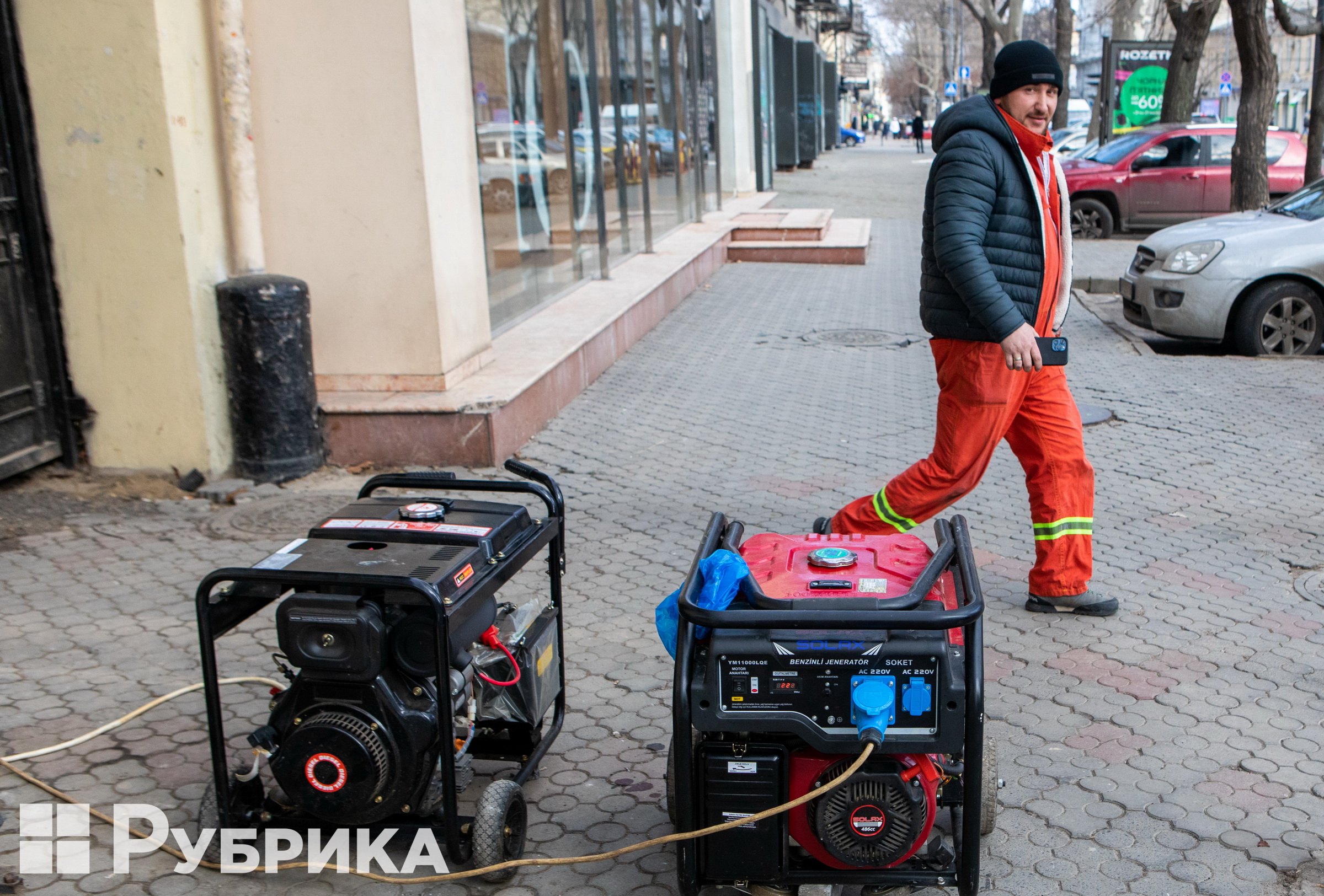
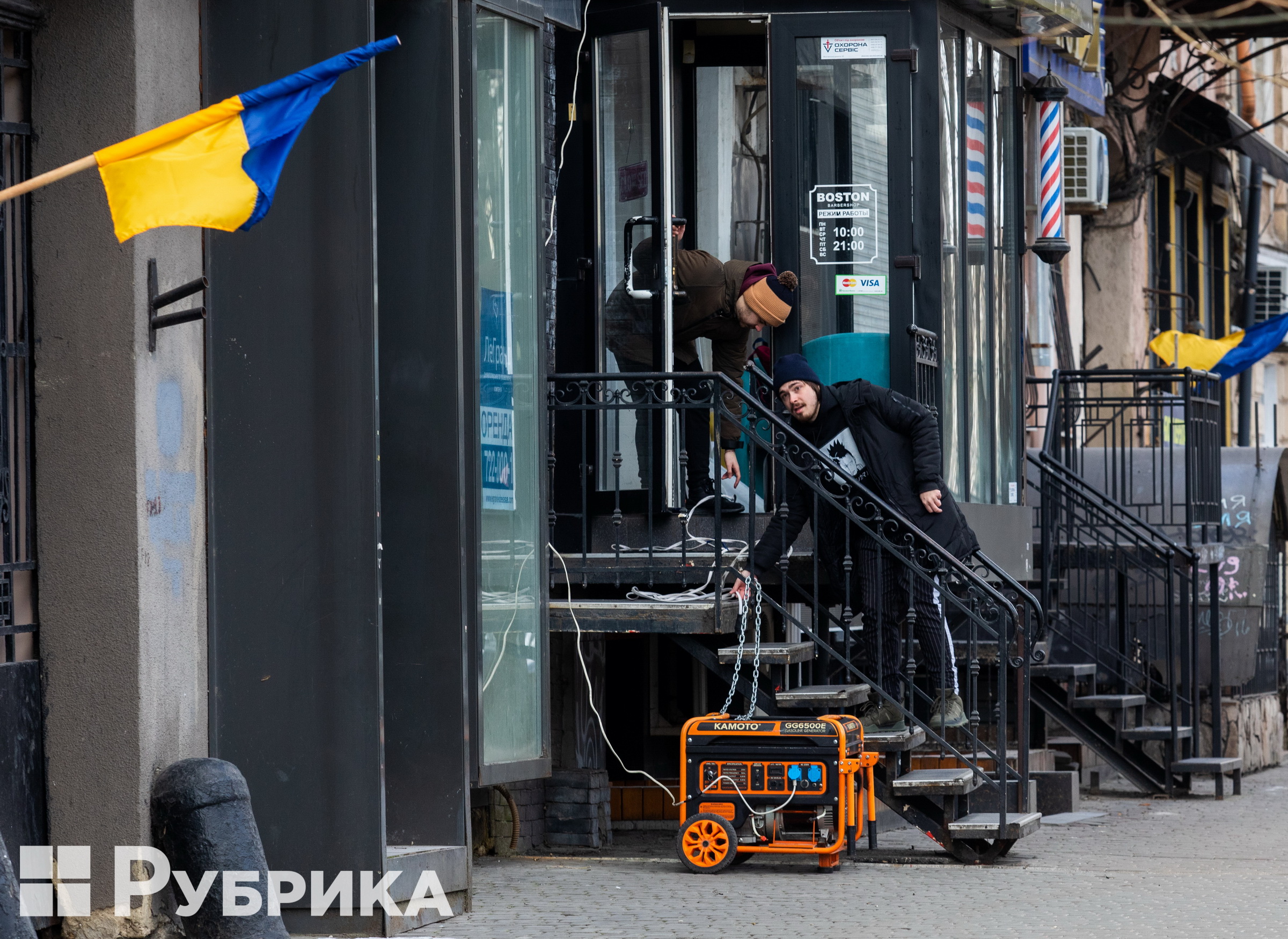
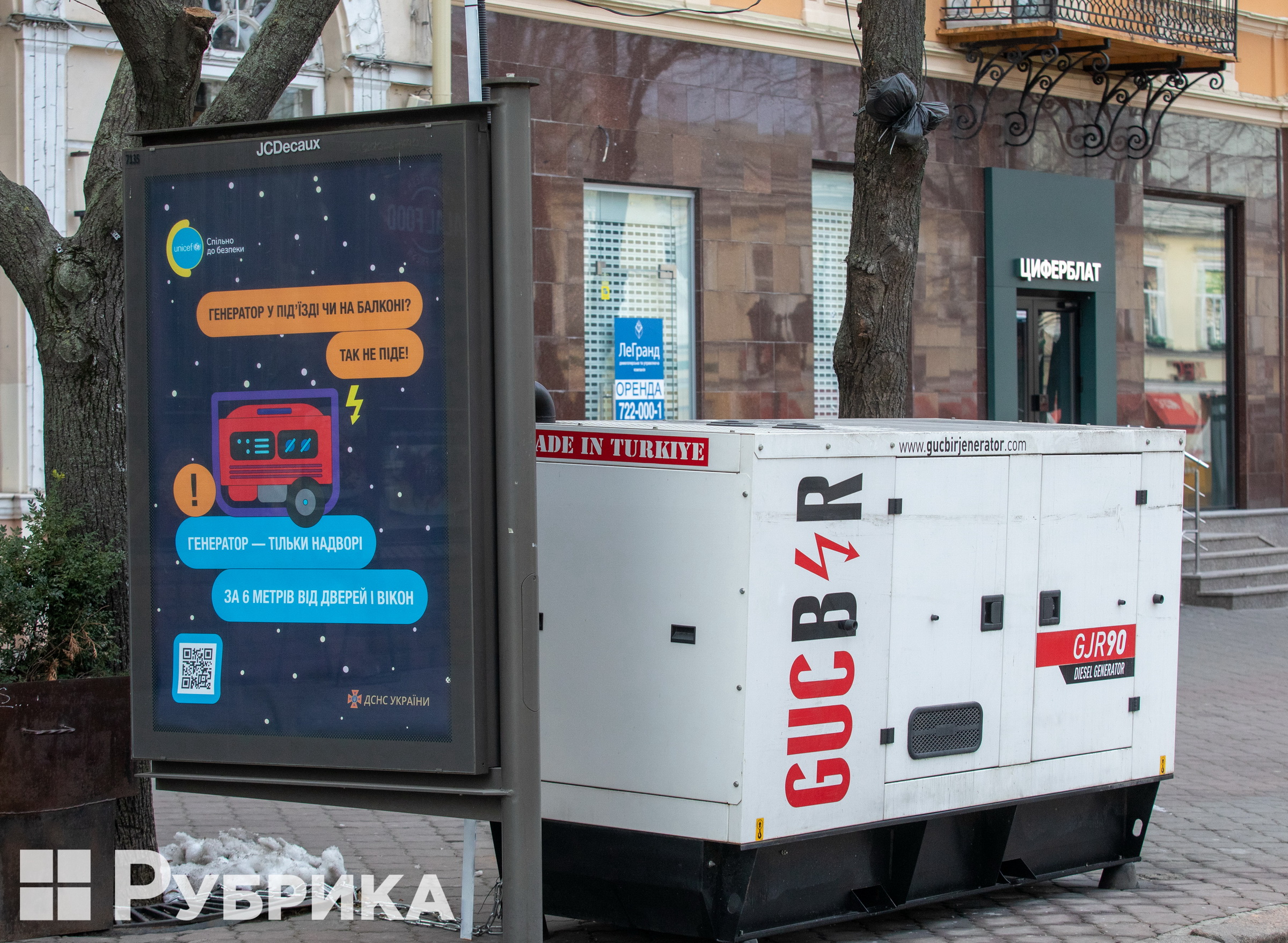
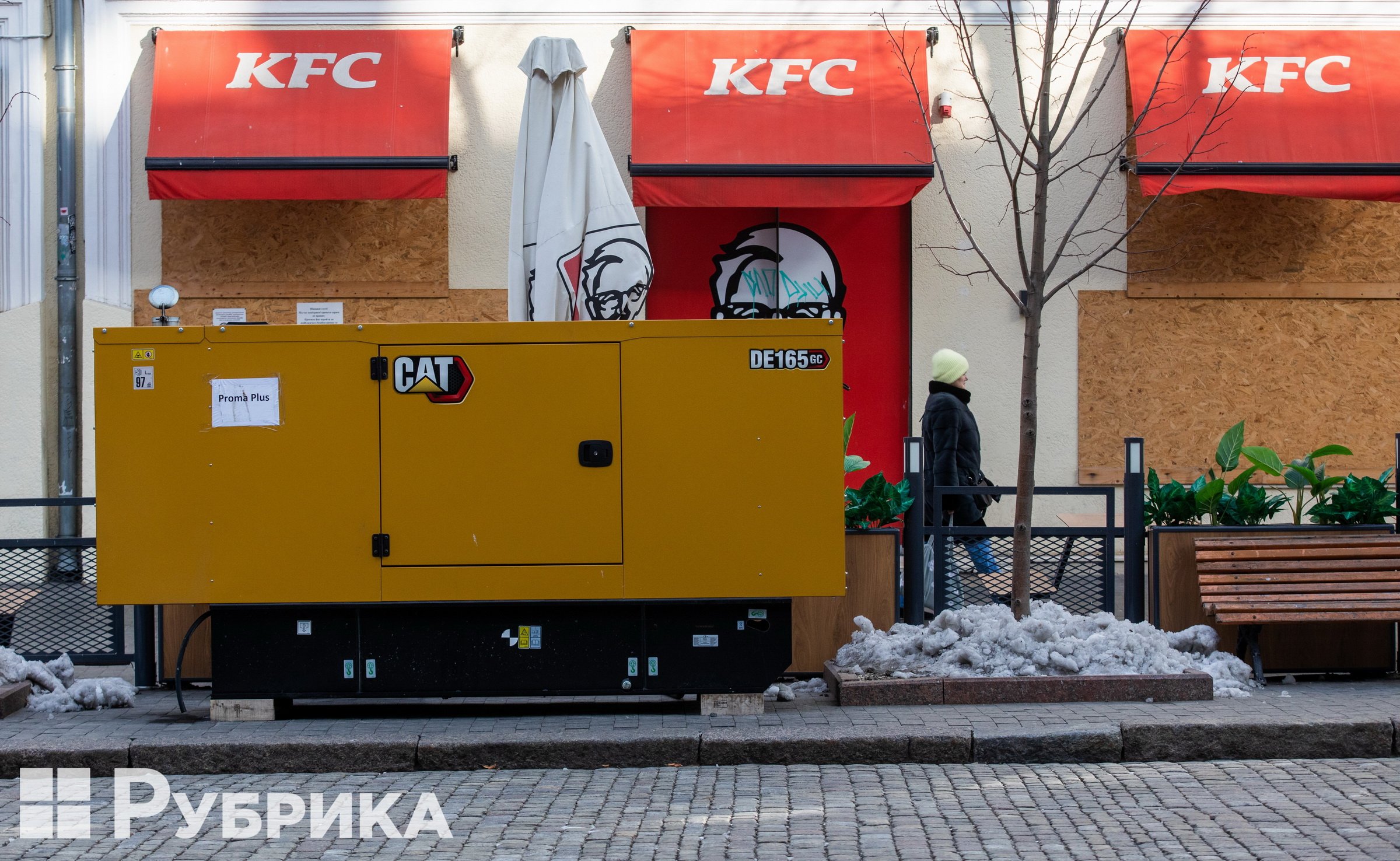
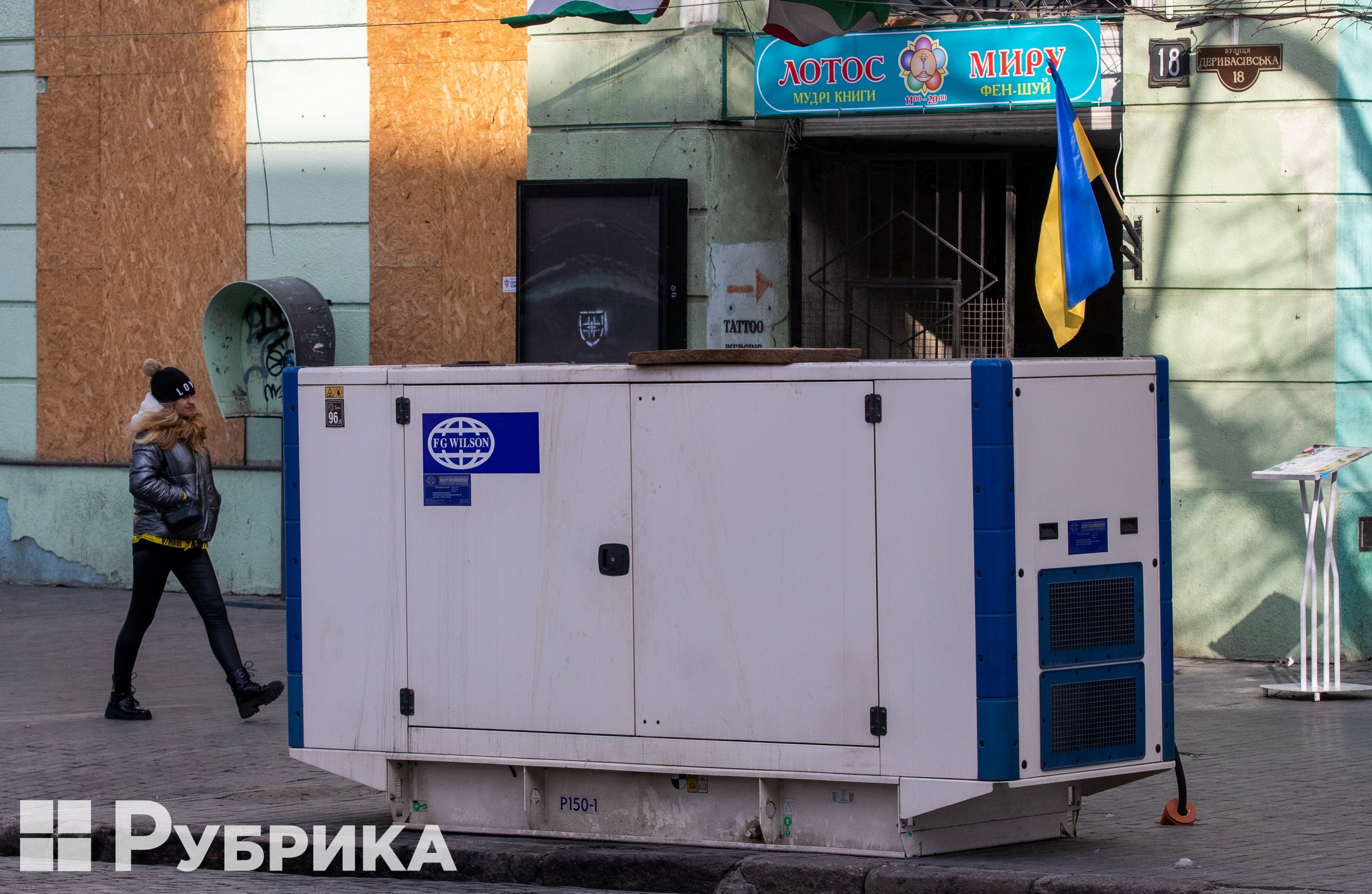
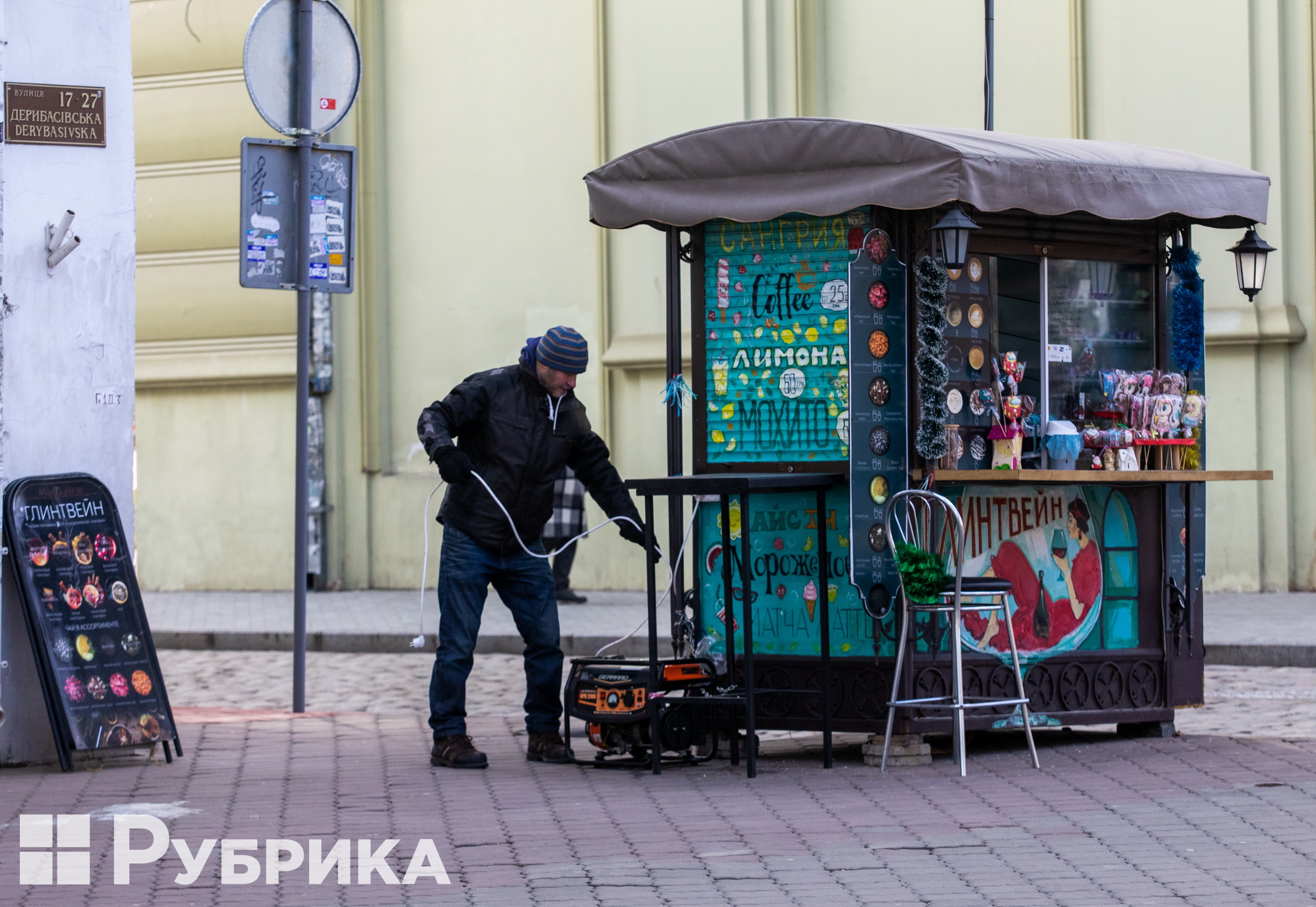
There are almost as many of them as Ukrainian flags fixed on the walls of houses.
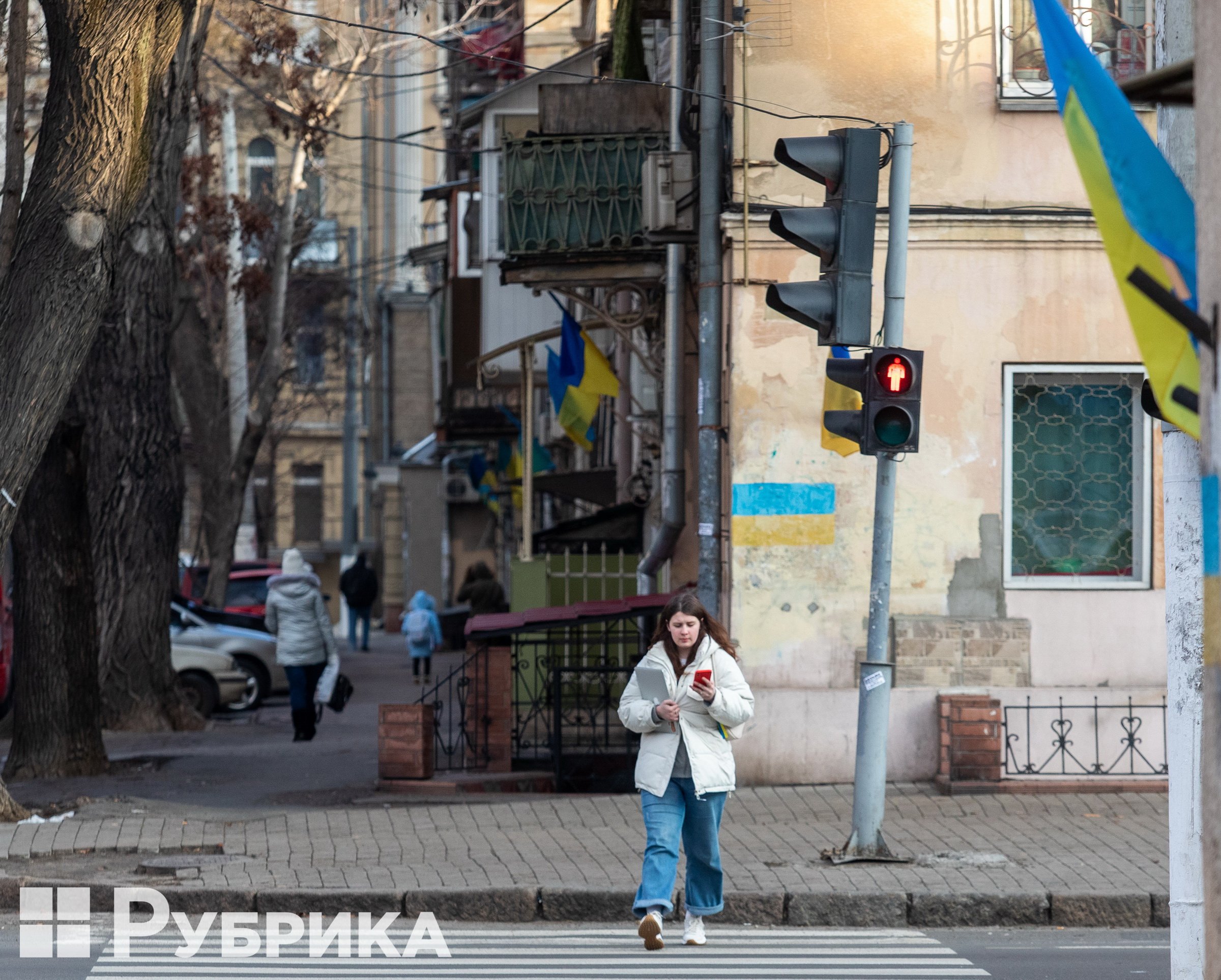
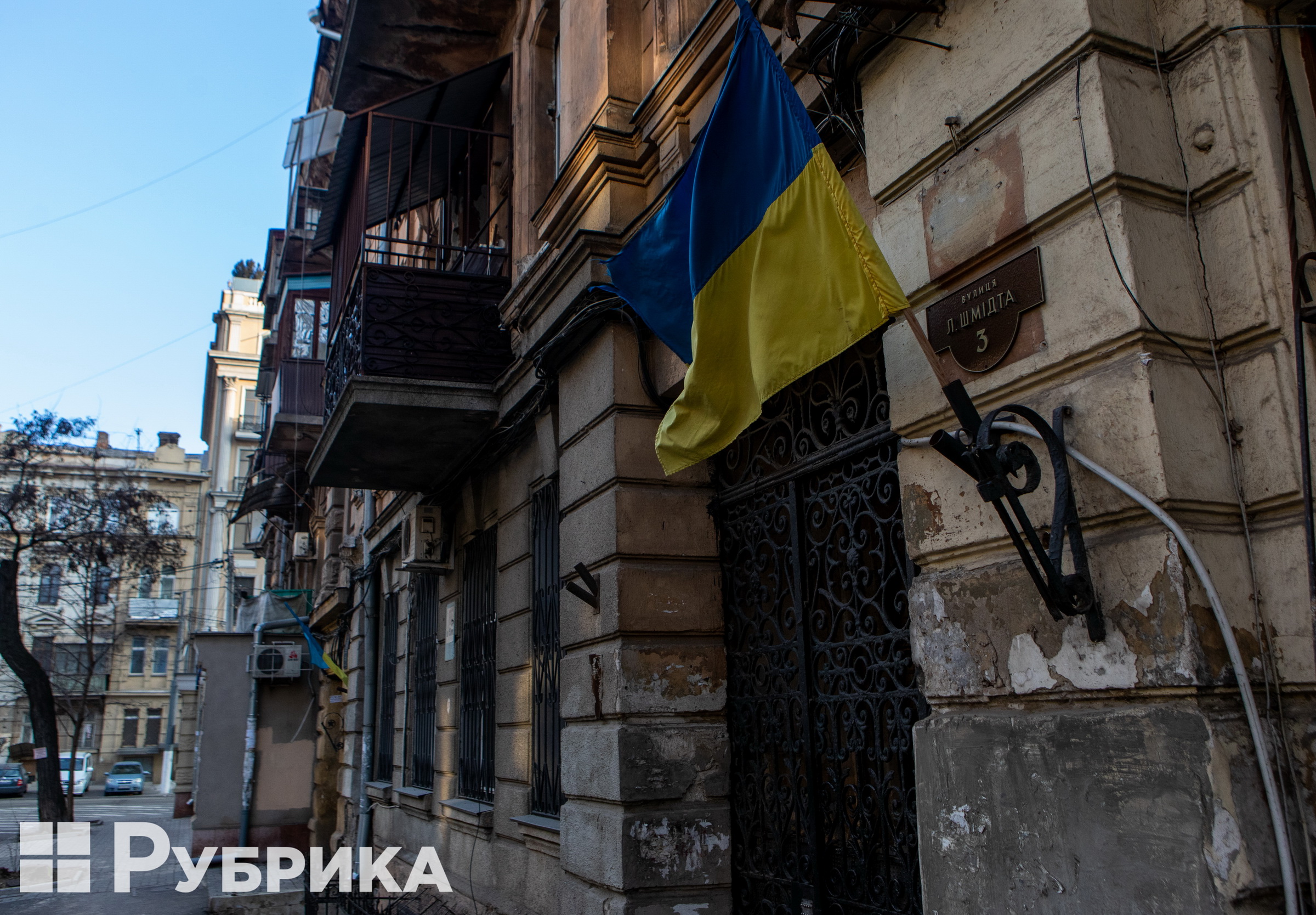
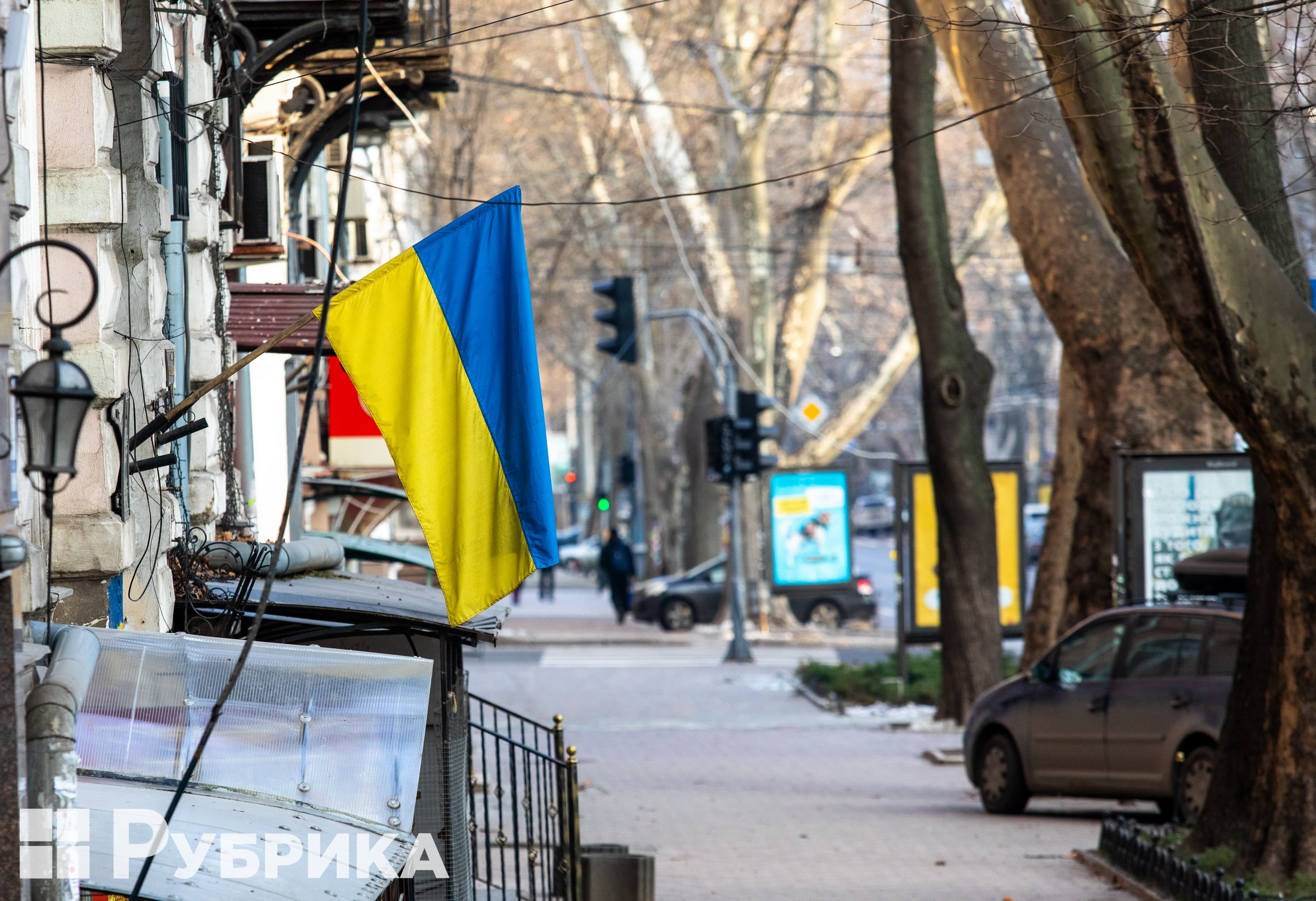
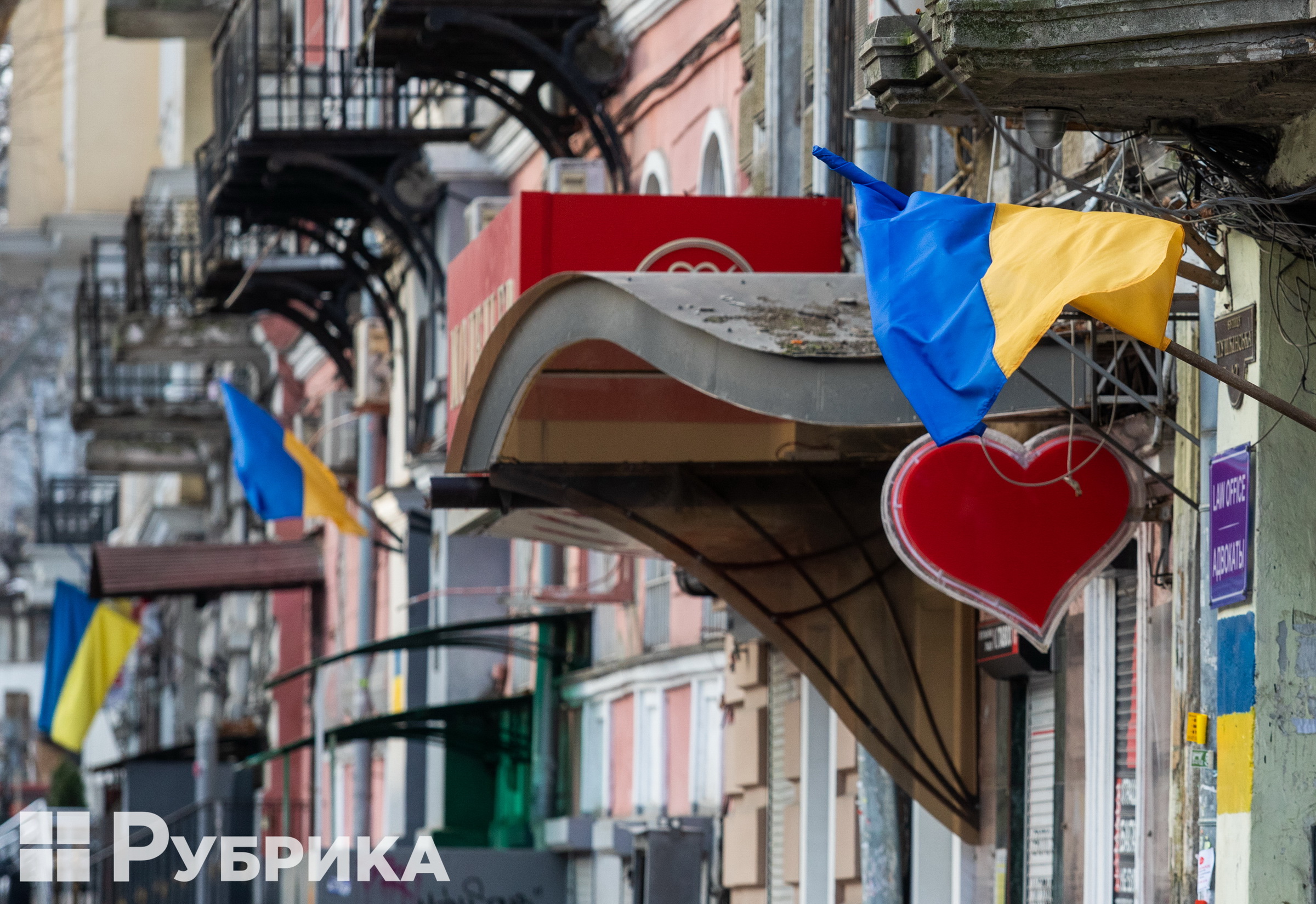
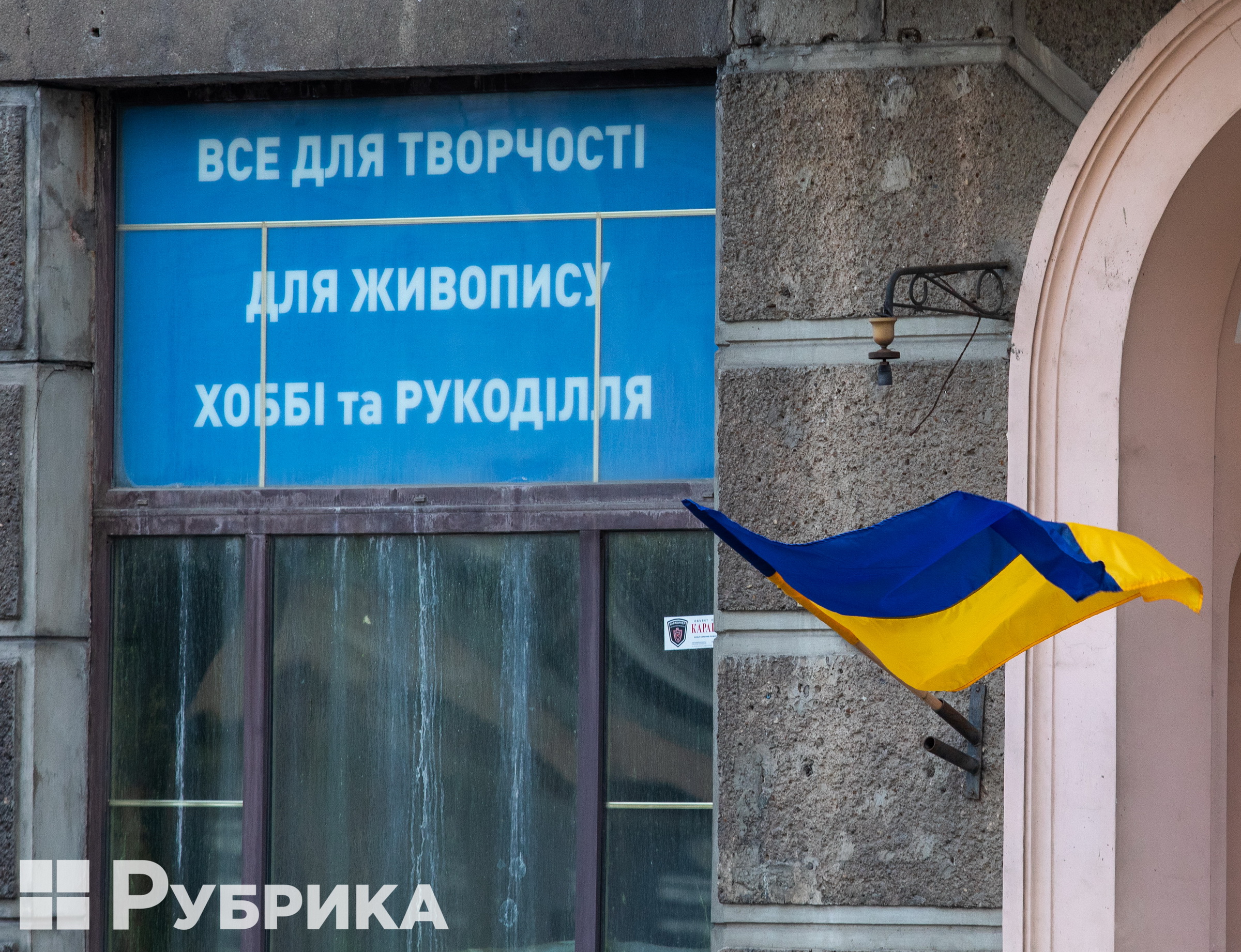
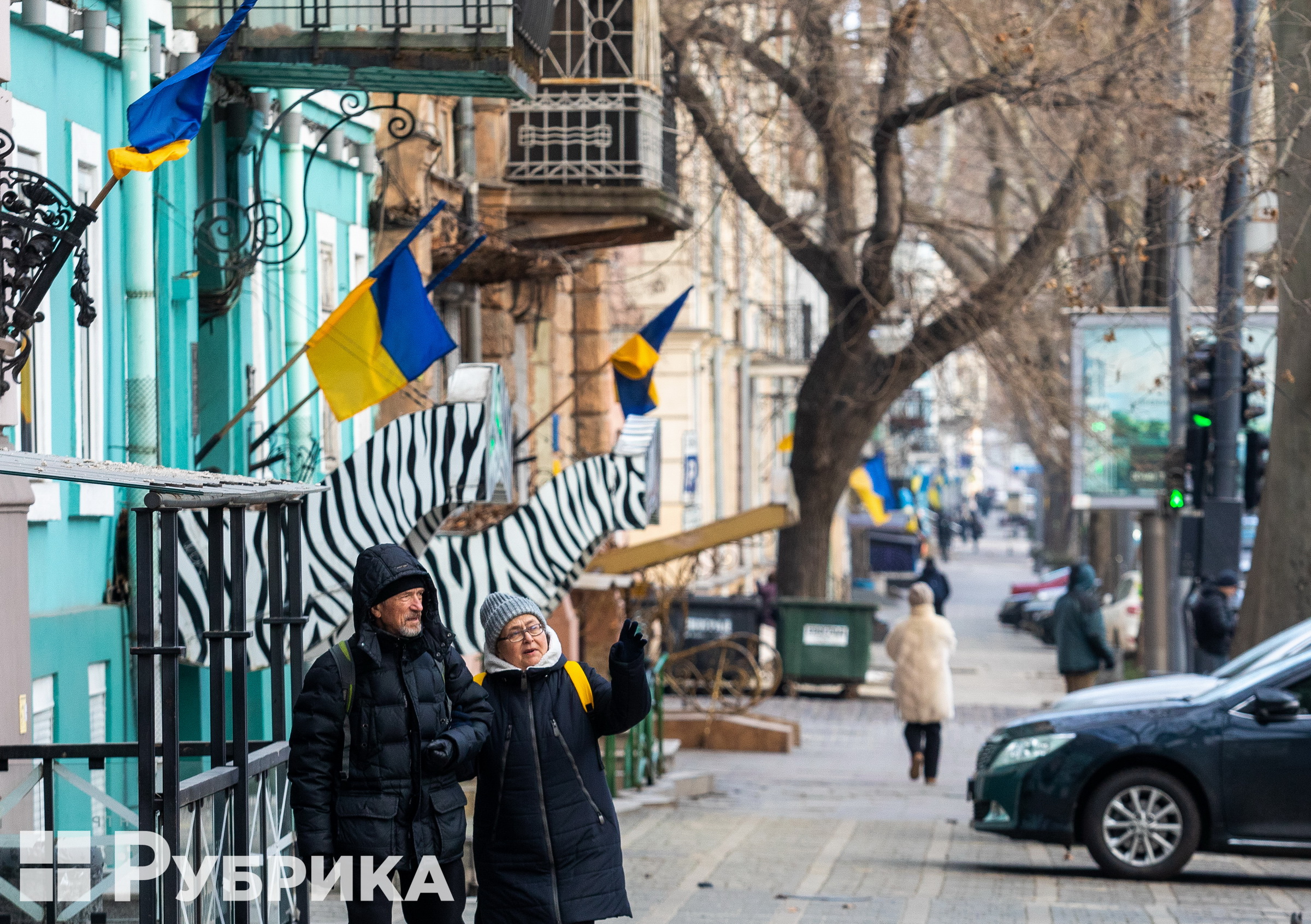
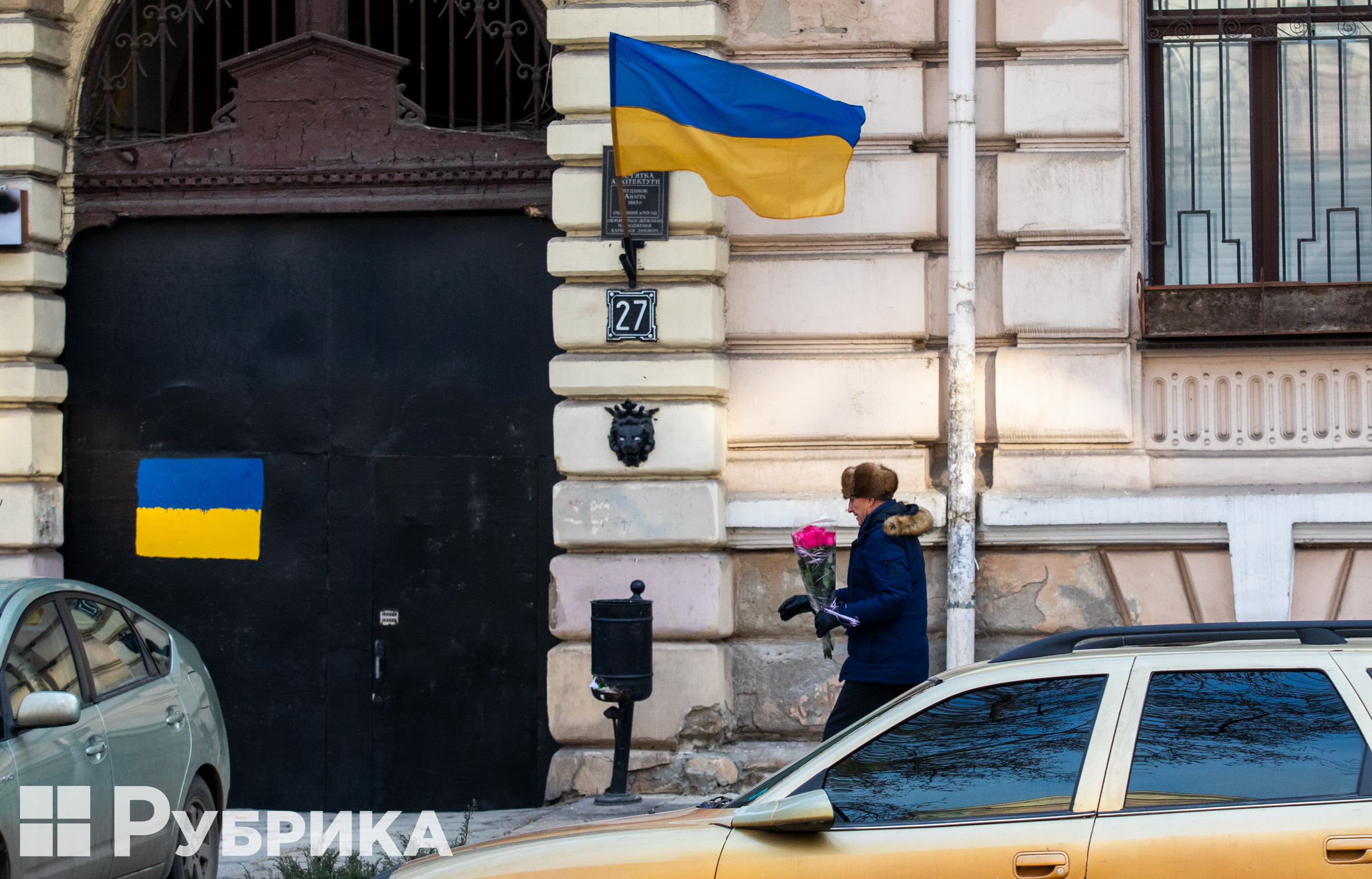
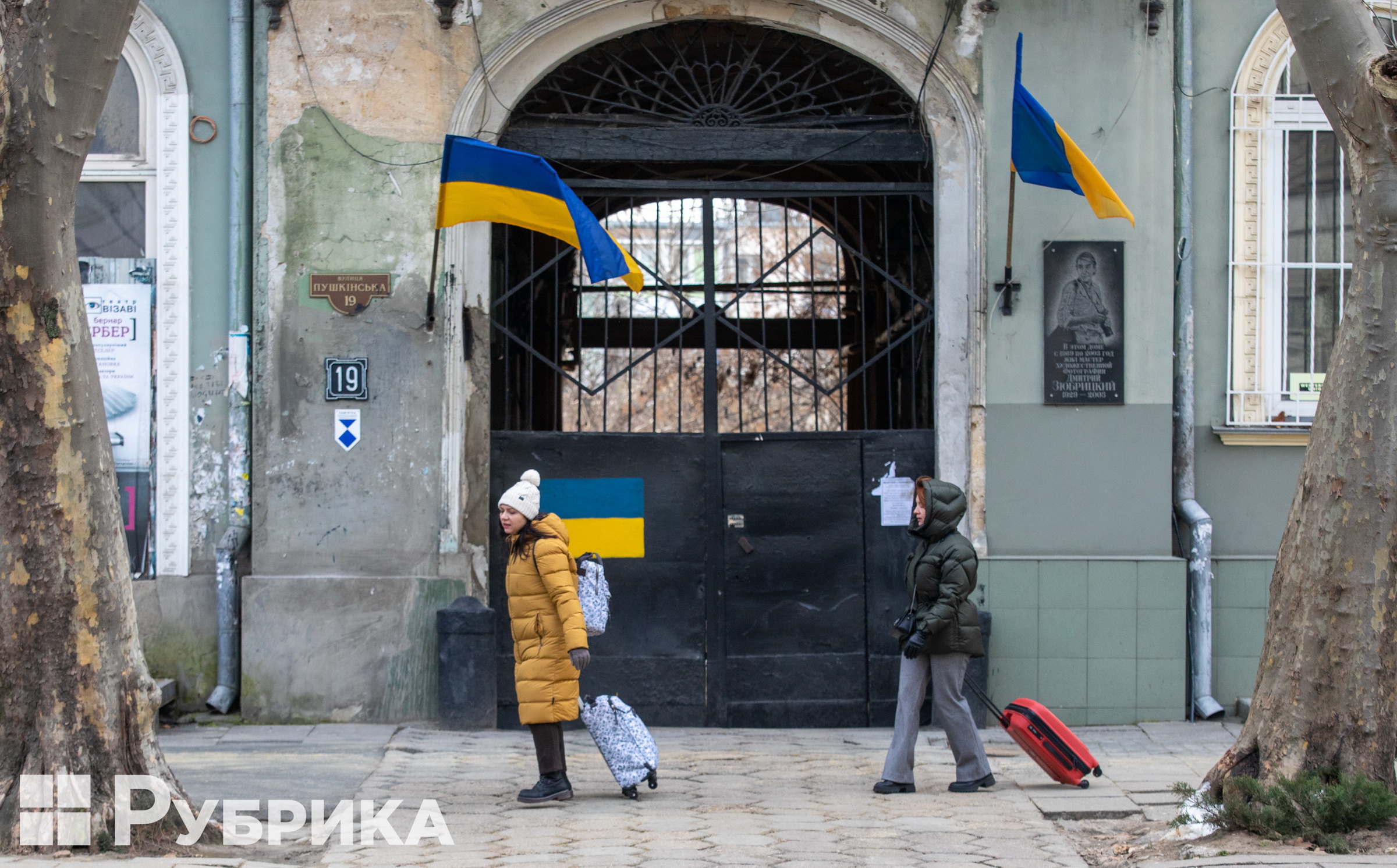
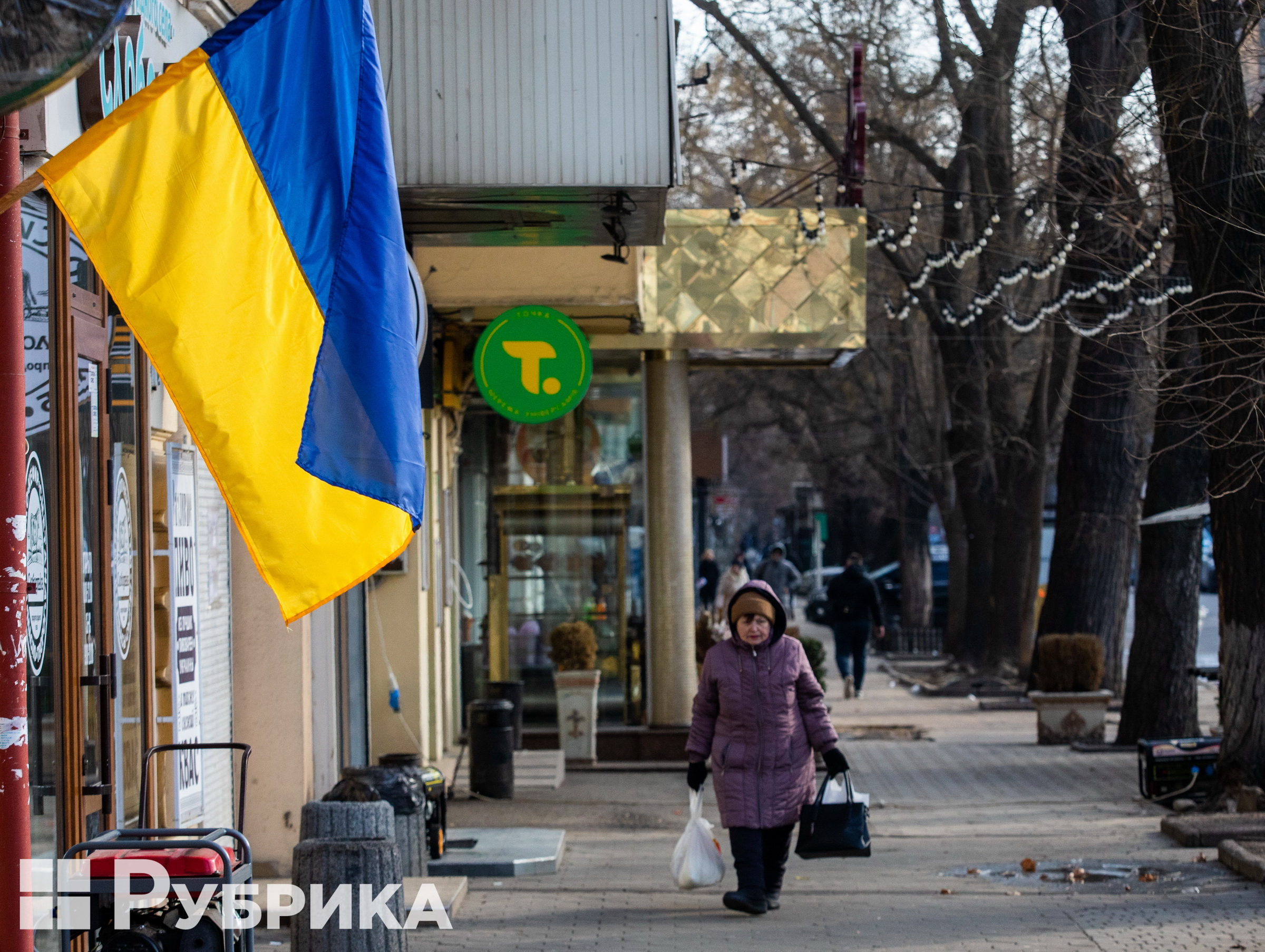
Cafes, shops, and banks are open — everyday life continues. Many have installed large stationary generators near their facilities, but there are also small ones tied to poles with thick chains.
In the shawarma cafe's window, a young guy is sharpening a large knife very theatrically, almost like a medieval warrior.
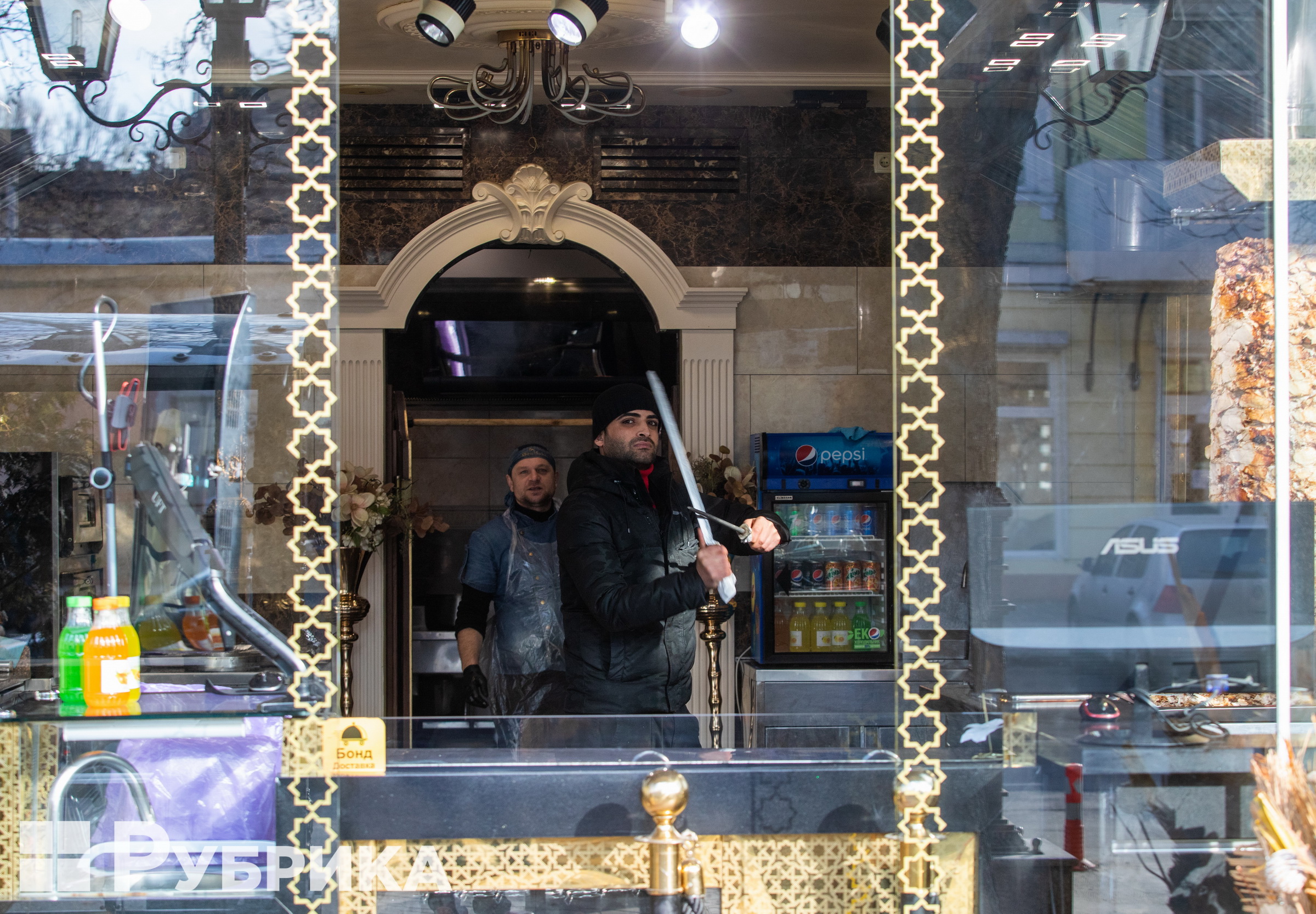
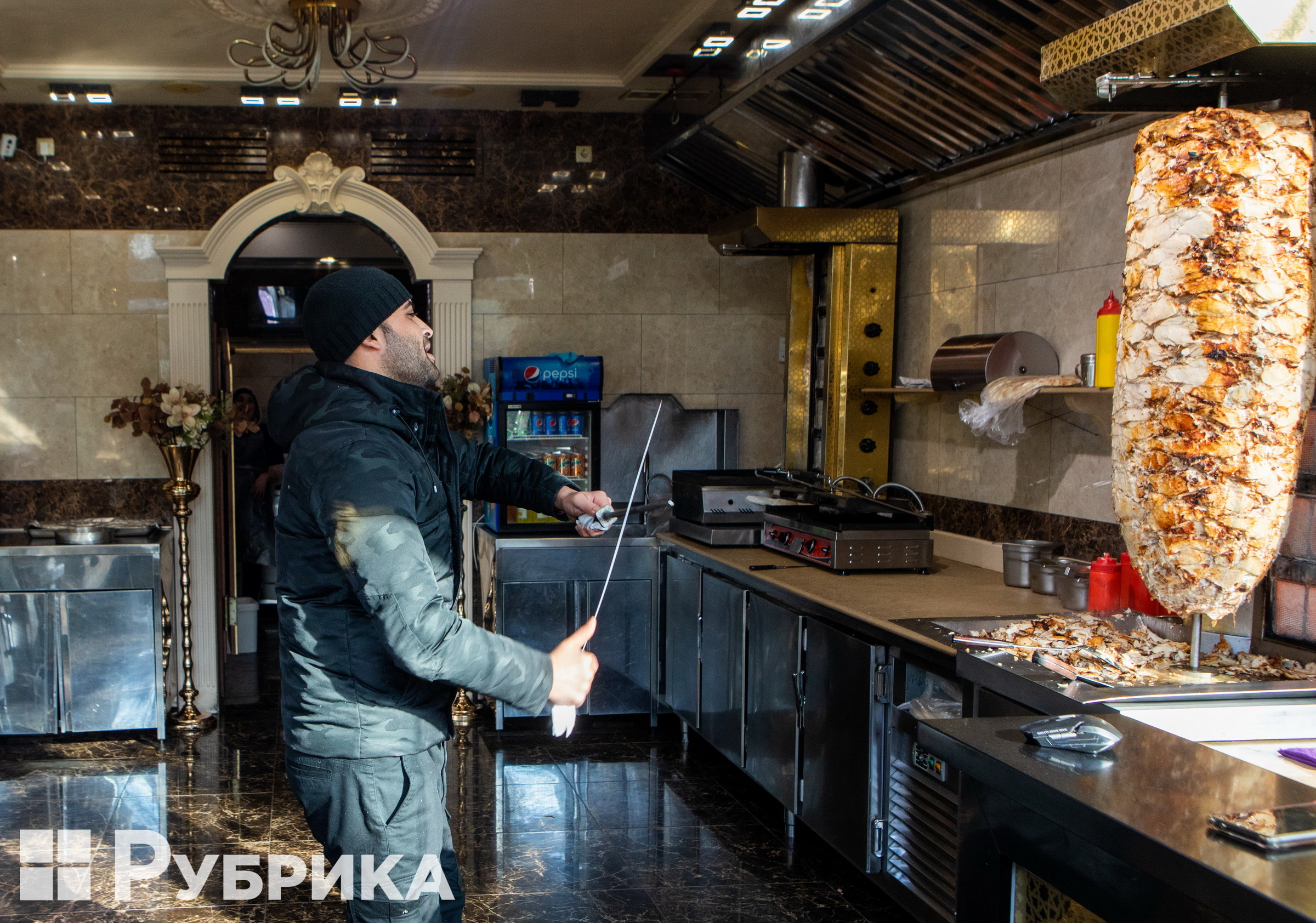
Muhamed moved from Syria to Ukraine five years ago. At first, he lived in Europe for a while, but he didn't like it there, so he joined his uncle's business, who had been living in Ukraine for 20 years. He says that russia bombed all his life in Syria and stole everything. He likes everything in Ukraine except the weather, it is very warm in Syria now, but it is cold in Ukraine.
The cold wind also blows from the sea.
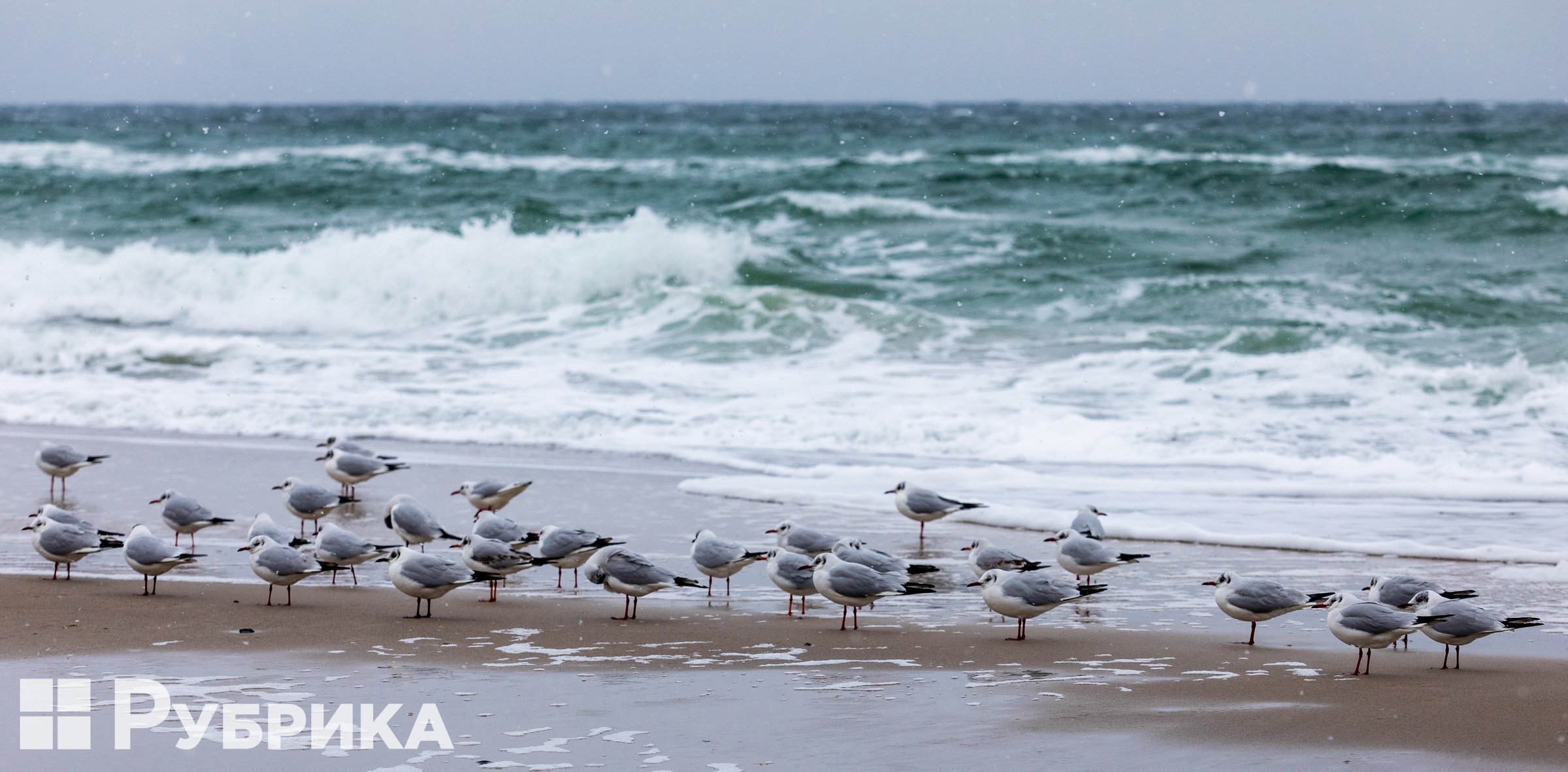
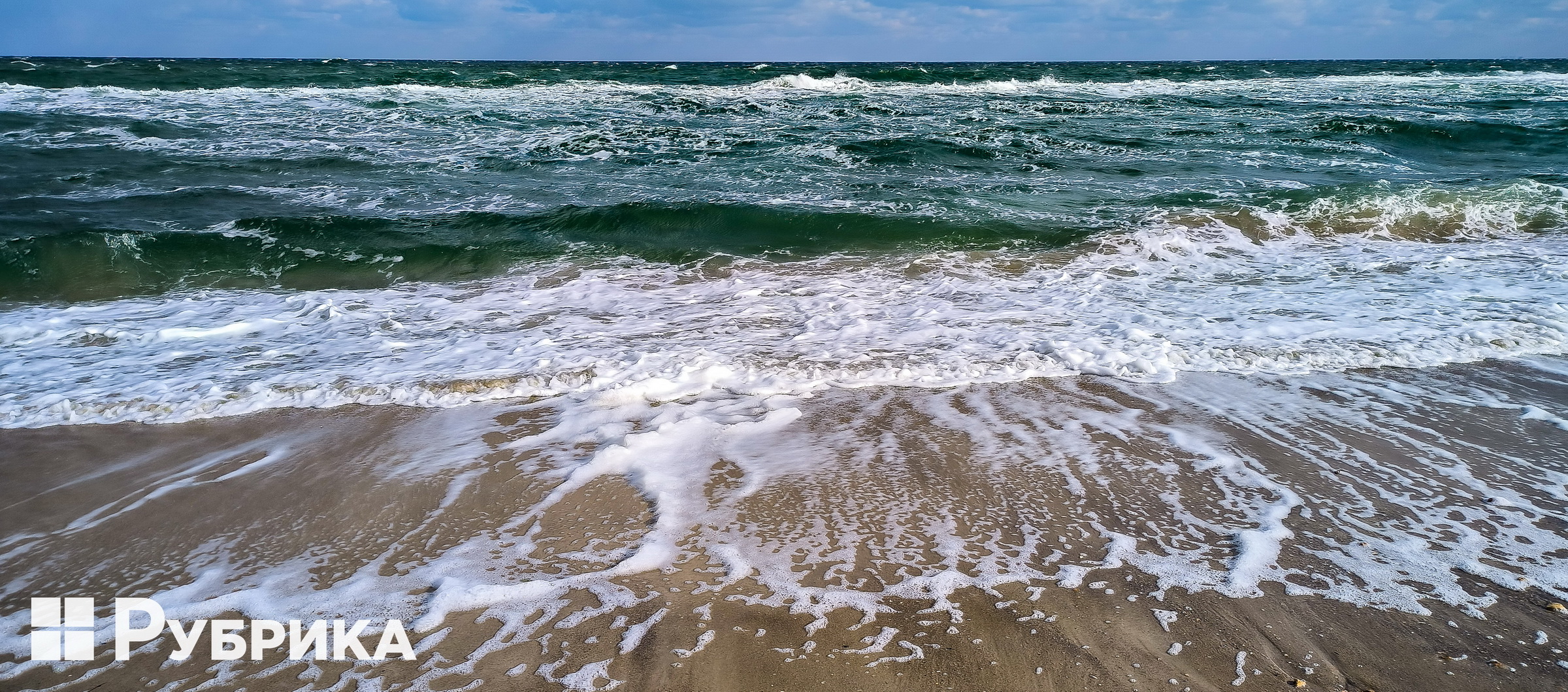
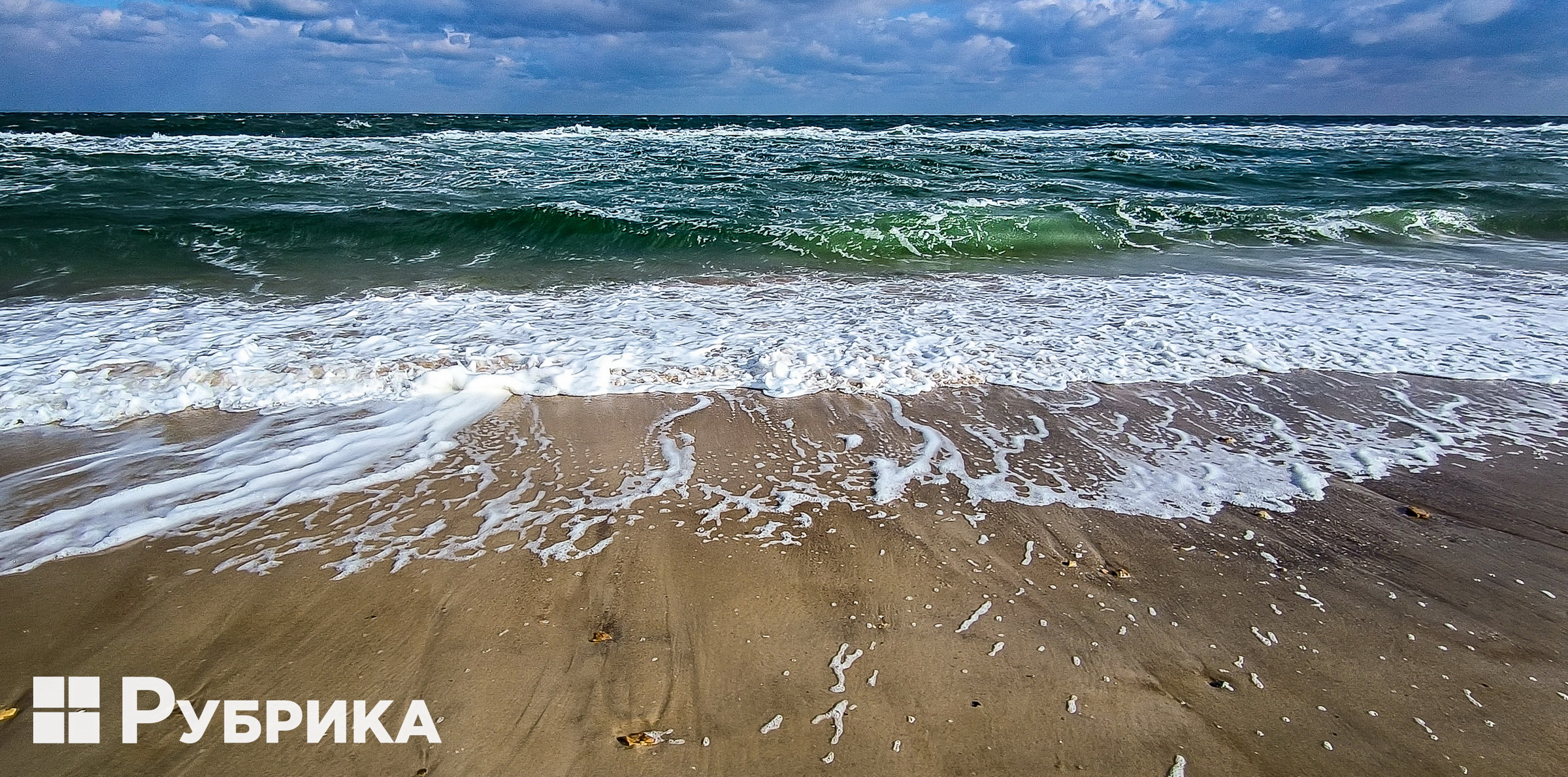
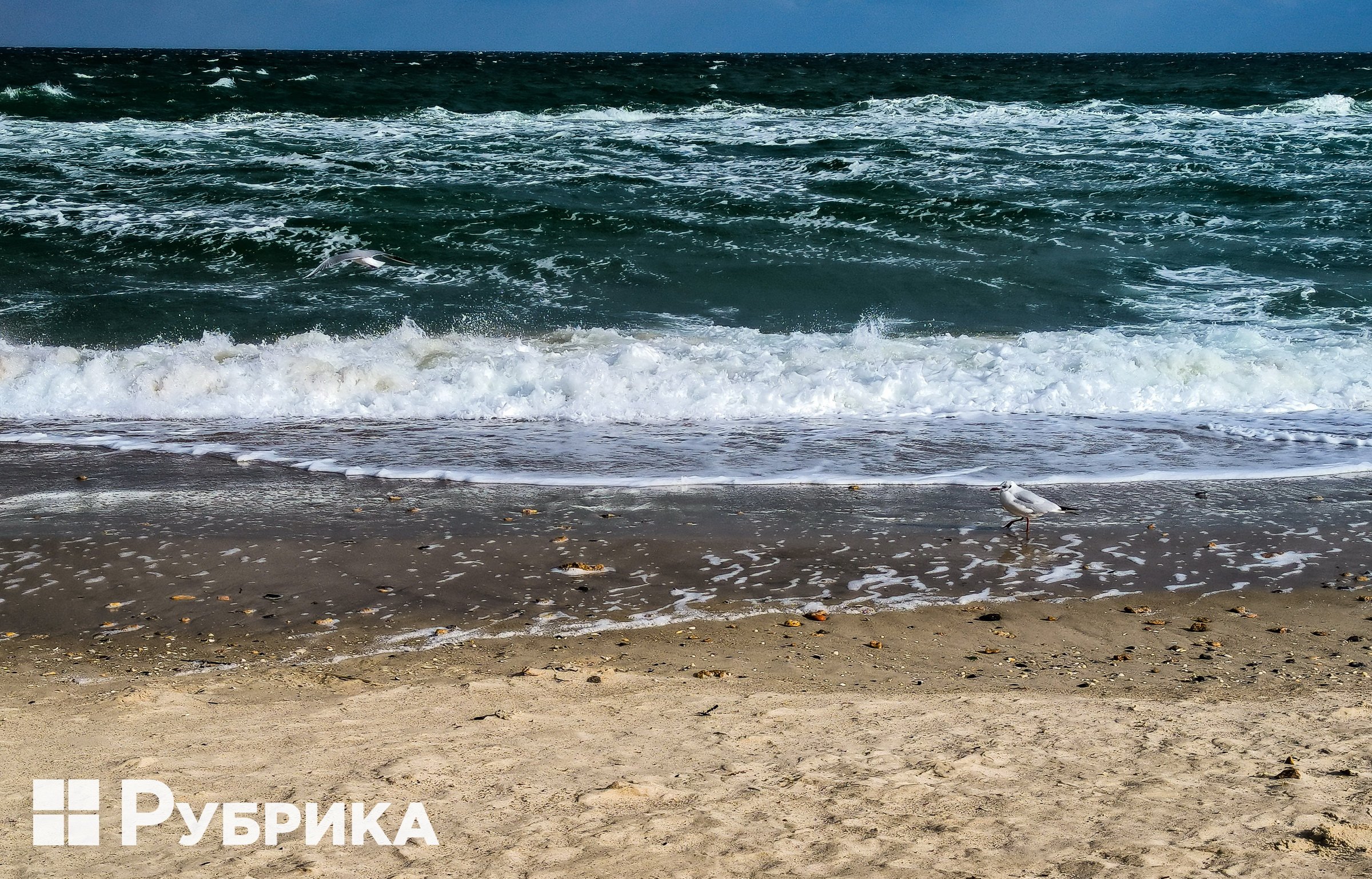
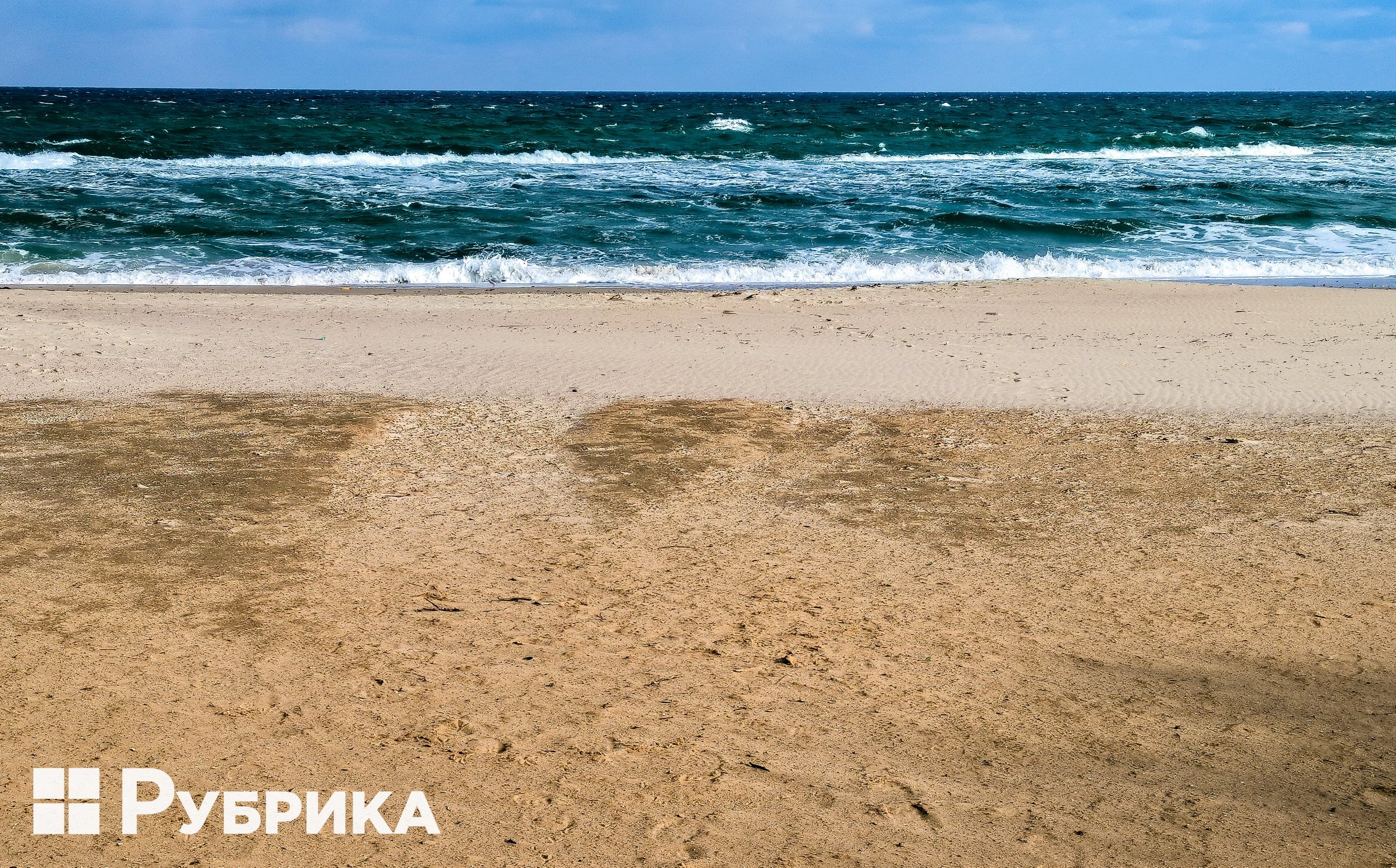
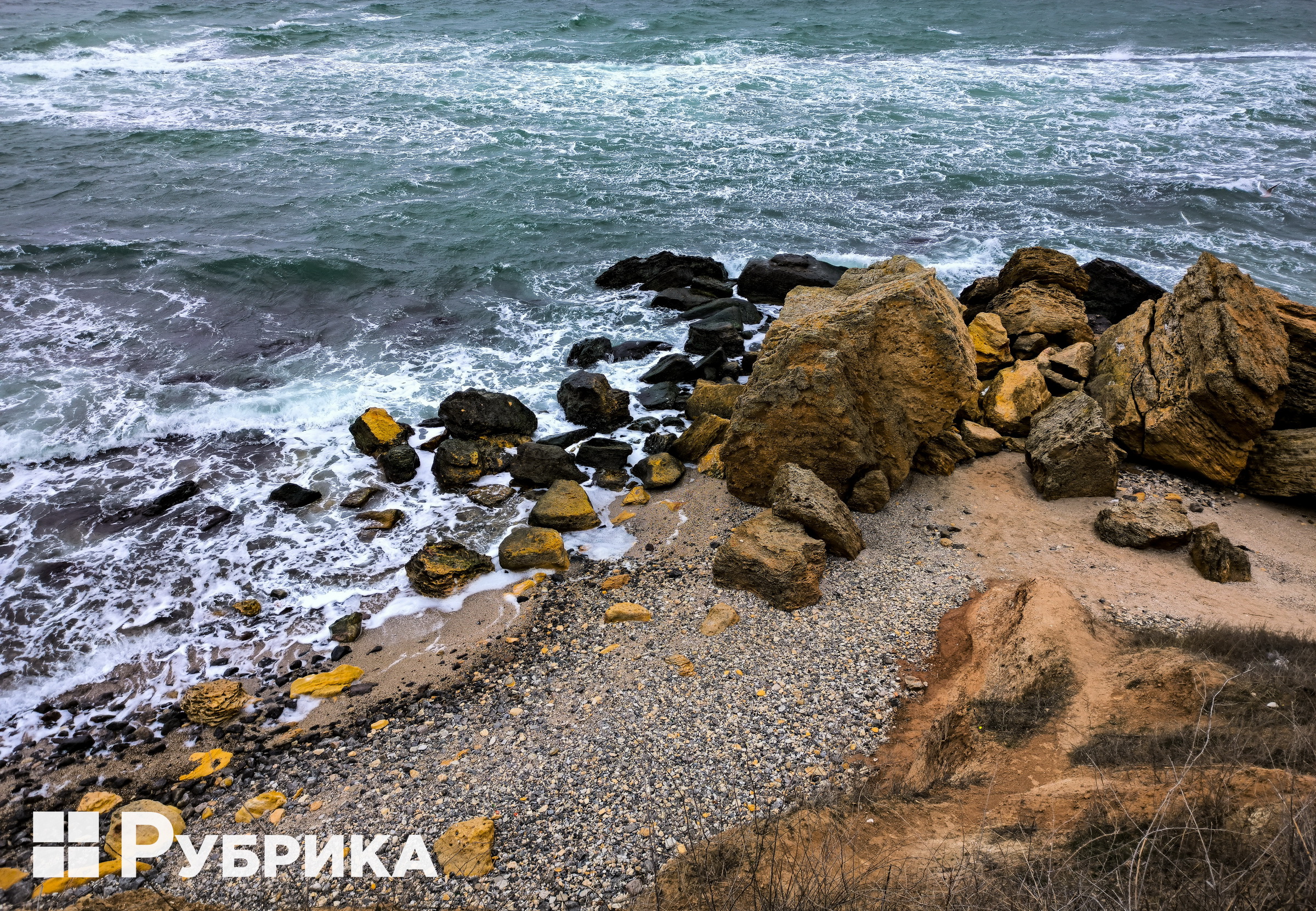

Small businesses operate in Odesa residential areas, as well as in the city center. Illuminated coffee shops, gas stations, car washes, and supermarkets can be seen against the background of dark buildings.






There are many people everywhere, where there are outlets, at large gas stations and in some stores. But it is much more convenient to recharge in specially equipped places — schools, tents of the State Emergency Service, and even bomb shelters.
Children play next to the beds in one such shelter, which was equipped at the beginning of the war, while adults charge their phones and work on laptops.


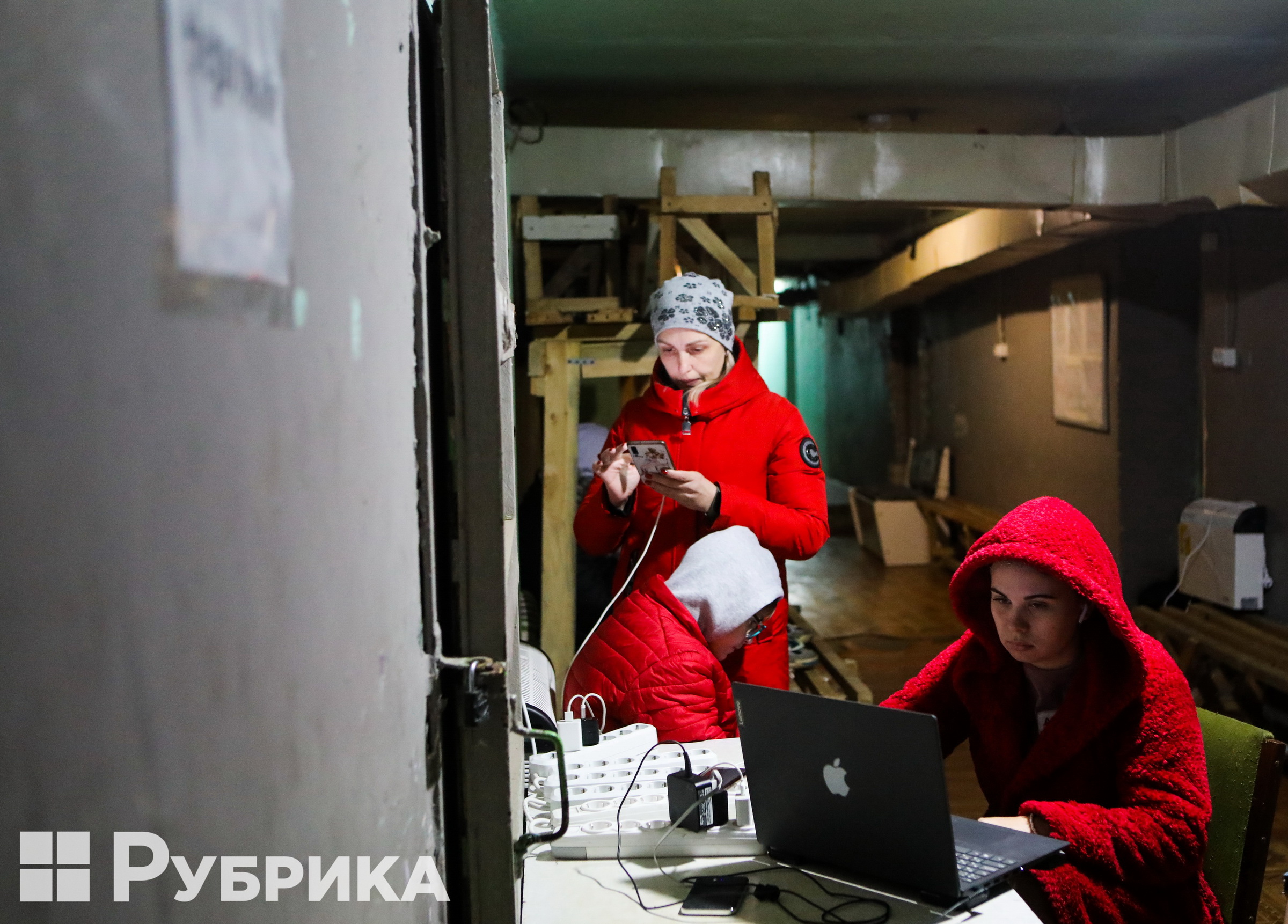

Serhiy is in charge here; he and his neighbors equipped this storage in the basement of an ordinary five-story building almost a year ago. A few months ago, the city government allocated a generator and provided the storage with fuel for it.

The number of extension cords is impressive — it seems that the whole house can connect their phones at the same time. Now Serhiy, together with two neighbors, takes care of order and continuous operation of the generator.


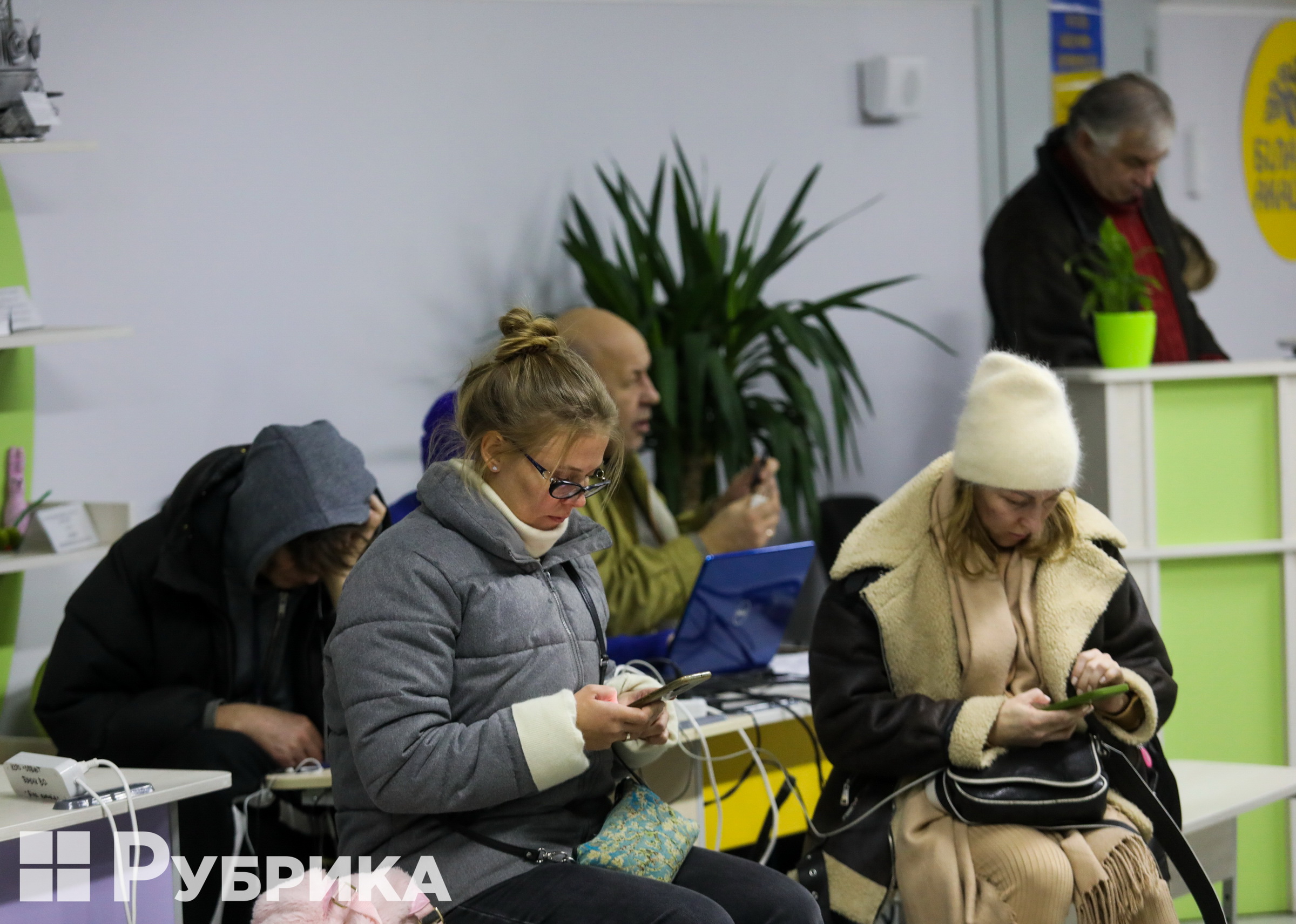




In one of the buildings on the first floor, we notice a flower shop, and a lamp is lit inside. The store is big but empty, except for the seller and the flowers. However, this is only an illusion.
Dmytro, the seller, begins to talk about his flower shop's life and future plans.



The man shares his pre-blackout fears — he thought no one would need flowers. But life goes on. In the morning, everyone goes to congratulate someone on maternity leave or a birthday; someone buys flowers for a funeral — also an integral part of life. He works by candlelight but continues to work.
Dmytro plans to work until International Women's Day (March 8) and go to the front after. Since the revenues are usually significant around the holiday, he plans to close all issues with his clients, bring home some money, and leave. Someone's got to go, defend the homeland, the man explains.
"Why not me? Not because I'm big and strong; it's not necessary there at all. It's just that people are needed there."







